AN inquest into the death of Exeter student Harry Arm strong Evans, which conclu ded on 31st October, condemned the University for failing to respond to his “cry for help,” and for failing in its “sa feguarding obligations.” The coroner, Guy Davies, concluded the two day in quest into Harry’s death by stating that there was a “a risk of further deaths” at the University, and announced that he would issue a report to Vice Chan cellor Lisa Roberts on how to prevent future deaths. Speaking to Exeposé after the results of the inquest, Rupert Arm strong Evans, Harry’s father, said “It’s a real step forward; the coroner not only identified failings, he put the important questions on record.” The inquest heard that there have been 11 suicides at the University of Exeter between 2016/17 and 2022/2023, eight of which have been officially confirmed by a coroner.
Harry Armstrong Evans, a physics and astrophysics student, took his own life in June 2021 after failing his third-year exams. The coroner, Guy Davies, stated that despite attempts by both Armstrong Evans and his parents to reach out to the University, “My central finding will be that the welfare service did not proactive ly respond to those concerns and did not provide the necessary support for Harry.”
Davies went on, “I further find that Harry’s death was due to an acute men tal health crisis which was preceded by a catalogue of missed opportunities along with system failures which together led to an absence of proactive results, which meant Harry could not receive support.”
He stated that the University has a “sa feguarding obligation” to its students which it ultimately failed in Harry’s case.
In May 2021, Harry Armstrong Evans emailed his personal tutor and welfare services detailing his concerns that isolation and other personal cir cumstances had negatively impacted his exam performance and mental health. He inquired about grades being cap


ped at 40% for resit exams, stating in his email to personal tutor Professor Matthew Browning: “I worked really hard for this degree and the thought of not achieving for reasons beyond my control is incredi bly upsetting.” His tutor stated at the in quest that he had no “red flag” concerns subsequent to Harry’s email, to which he replied a week later. Davies outlined con cerns that this email was a “cry for help.”
The inquest heard that Harry’s mo ther, Alice Armstrong Evans, had called the University wellbeing services twi ce, expressing concerns about her son’s welfare. However, on both occasions the logs were accidentally closed due to an IT error, culminating in no one from Wellbeing reaching out to Harry as a re sult of his mother’s concerns. The in quest also recommended changes to the Wellbeing team’s case management system following these two IT errors.
Outside the court, Harry’s family no ted that there was a “silent student suicide pandemic” which gripped Britain, and said that Universities should be legally obliged to provide a “duty of care” to students. As a result, they are campaigning for the implementation of ‘Harry’s Law,’ which would mean that UK universities would be required to report their annual suicide statistics, and the academic departments in which these took place. They have set up a petition, which Alice Armstrong Evans told Exeposé, “will be online next week. We expect to be in communication with our lo cal MP, Mr Scott Mann, who is will promo te the Harry’s Law in the Commons.” Har ry’s Law would also give the Department for Education powers to investigate uni versities with an above average suicide rate.
A particular area of concern raised by the inquest was training for academic staff. Professor Matthew Browning, Har ry’s personal tutor, told the inquest he had received no in-person suicide preven tion training which hindered his ability to spot “red flags.” Additionally, Davies stated that the University’ suicide preven tion response included an “over-reliance” on email forms rather than face to face meetings, stating “Emails do not amount to personal engagement”, and recommen ding the University establish clear policies on matters such as whether pastoral tutors should give their mobile number to stu dents, and clearer protocols on when staff could contact parents and family. Alice Armstrong Evans, Harry’s mother, told Exeposé: “I really hope that Exeter Uni
versity will get its act together and I hope there will be a complete overhaul of the Wellbeing services and that academic tu tors will immediately take action whenever any student suddenly fails any exams. That academic tutor must make time to spend a couple of hours with that student ex plaining his, her or their options in order to save his, her or their degree — and to explain how marks may be adjusted etc.”

Davies stated “This court has heard evidence of the terrible consequences of academic pressures on students and the need for universities to provide a sa fety net … In Harry’s case the safety net did not operate.” Alice Armstrong Evans commented that if more provi sions had been in place and Harry had been offered support, “My beautiful, kind clever much-loved son would still be alive with a future to look forward to.”
Harry’s parents also criticised Exeter University for the limited contact they had with Harry’s family following his death.

Alice Armstrong Evans told Exeposé they received, “one phone call offering condo lences and one defensive email. Needless to say no flowers or wreath for Harry’s grave. The first we heard from Harry’s tu
tor, Head of the Physics and Astrophysics Department and Head of Wellbeing was during the course of the Inquest… really I don’t think that was good enough following the loss of our beautiful and clever son.”
The Students’ Guild Officer team provided Exeposé with the following sta tement: “Since hearing of the passing of Harry, our thoughts and condolences have been with Harry’s friends, family and all of those who knew him at University. We want to reassure you that at this time, and all others, as your Officers we are part of your community. We have felt the impact of this, and we are here to support you.
Mental health, wellbeing and sup port is one of our collective priorities for the year. We have already had a num ber of in-depth conversations with the University, where we have all agreed on the importance of taking the recommen dations from the Coroner’s Report with utmost seriousness. We will, where ne cessary, continue to challenge the Univer sity when we feel that is needed, keeping your interests at our heart, and ensuring the University’s systems work for
FREE ISSUE 737 9 NOV 2022 exepose.com @Exepose THE UNIVERSITY OF EXETER’S INDEPENDENT STUDENT NEWSPAPER SINCE 1987
you.
Movement of Women’s Varsity sparks outrage Page 3 Anguish in the AngloWelsh Clash Page 32 exeposéThe South West’s Best Student Publication ‘Coming of Age’ with Blondes Page 20 Coroner’s report criticises University following death of Exeter
Images (top to bottom): Kieran Moore, Nathan Cole, Kieran Moore Continued on page 4
Megan Ballantyne and Amy Rushton Editor and
News Editor
student
THIS ARTICLE CONTAINS CONTENT RELATING TO SUICIDE WHICH SOME READERS MAY FIND DISTRESSING
Image: Alice Armstrong Evans
Editors
Devonshire House, Exeter, Devon, EX4 4PZ
Print: Megan Ballantyne & Joshua Hughes
Online: Ana Anajuba & Clemence Smith
Deputies: Livvy Mason-Myhill editors@exepose.com
Executives
Social Media: Nancy Stitt Events: Georgia Balmer
Chief Photographers Rachel Cunningham Kieran Moore
News Editors
Print: Amy Rushton
Online: Megan Haynes & Isabella Ankerson news@exepose.com
Features Editors
Print: Oliver Lamb & Austin Taylor Online: Catherine Stone & Maggie John International: Maeve Fitzpatrick & Ryan Gerrett features@exepose.com
Comment Editors
Print: Anabel Costa-Ferreira & Connor Goddard Online: Izzy Langguth & Kristen Taylor comment@exepose.com
Satire Editor
Print Cleo Gravett Online: Archie Lockyer
Lifestyle Editors
Print: Pippa Bourne & Gracie Moore
Online: Ruth Hetherington & Charlie Nadin lifestyle@exepose.com
Arts + Lit Editors
Print: Ella Minty & Joshua Smith Online: Gwenllian Page-Gibby artsandlit@exepose.com
Music Editors
Print: Megan Ballantyne, Joshua Hughes & Livvy Mason-Myhill
Online: Mahnoor Imam & Lauren Jones music@exepose.com

Screen Editors
Print: Pollyanna Roberts Online: Matthew Bowden & Harvey Isitt screen@exepose.com
Tech Editor Print: Harry Hawkins
Science Editors
Print: Daniel Pain & Hayley Power

Online: Daisy Scott & Imogen Poyntz-Wright sciandtech@exepose.com

Sport Editors
Print: Rob Worthington Online: Oliver Rickwood & Archie Rucker sport@exepose.com
Proofers
Joshua Hughes, Megan Ballantyne, Livvy MasonMyhill
READING week. A time for many to catch up on work, complete midterm assignments or even just relax and take a breather at the halfway point of the year.
However, reading week this term for some has been a mix of stress, anxiety and grief. The result of the inquest into the death of Harry Armstrong Evans has left many this week shocked, appalled and angry that something like this has happened at Exeter.
For Alice and Rupert Armstrong, it has been a week where months of campaigning finally led to the end of the coroners inquest and the issuing of a prevention of future death notice to the University. In England and Wales alone, there were 5,583 suicides reported in 2021, a 6.9 per cent increase compared to 2020 in which there were 5,224. Alice and Rupert Armstrong Evans are calling for ‘Harry’s Law’ to be introduced. If this law come into place, it would mean that universities would be legally required to publish their annual suicide statistics. The change Alice and Rupert are campaigning for could drastically help a great number of people in Exeter and across the country.
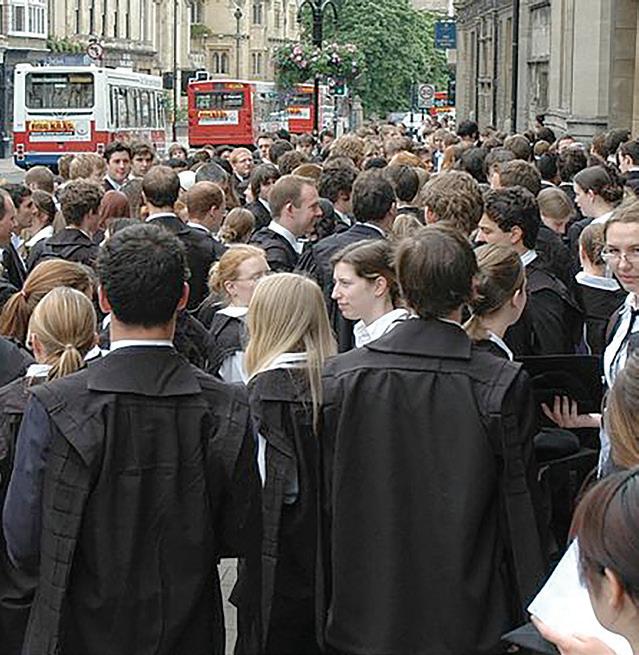
The stress of reading week has also for many centred around securing a house for next year (page 4). With increasing numbers of students at Exeter each year and a limited number of houses to go round, this search has intensified, and at this crucial point in the year has left some feeling stressed and drained. There has also been anger surrounding the movement of the Women’s Varsity from Sandy Park to
the Sports Park (page 3) with EUWRFC members claiming that the move has hurt women’s sport at the University.
Nationally, the UCU has recently announced their intention to strike at the end of November (page 3) and also to carry out a marking and assessment boycott in the new year. The NUS have also dismissed their president, Shaima Dallali, over claims of anti-Semitism (page 5).
Elsewhere in this edition, Features look at the history of civil unrest in Iran (page 8), Comment give their thoughts on the £2 hot meal scheme (page 10) and Satire cover the appointment of the new manager at Exeter City F.C (page 12). Lifestyle feature a range of Self-care societies (page 14) and Arts + Lit showcase their ‘Author of the week’ (page 16). Music interview Alex Davison of Blondes about their hit song, ‘Coming of Age’ (page 20). Screen discusses the presence of the horror genre within kids’ films (page 22) while Tech reviews the new FIFA 23 (page 25). In Science, we look at the use of Lego in science (page 29) and Sport gives a detailed review of both Varsity matches (pages 31 and 32).
The issues raised in this edition have been challenging to write about and will be upsetting to read. Death at any point is a sombre subject yet the context surrounding this tragedy highlights how important it is to have these difficult discussions. We hope everyone has had a good reading week and wish everyone the best of luck for the next six weeks.
Josh and Megan

University news home and abroad
WITH the cost-of-living cri sis hitting world economies drastically, it goes without saying that the increase in energy bills has not only affected individual households, but also different institutions around the world — including universities.


The Jagiellonian University in Kra kow in Poland has noted a 700% in crease in energy costs, leaving them with no other option but to con sider ways of cutting energy usage.
They have utilised strategies such as temporarily going online with their teaching in order to cut grow ing energy costs, alongside eliminat ing certain weekdays from timetables.

THE AJ Tracey fund will help to provide support for black students and reconcile the “historic under representation” associated with the UK’s most prestigious university. In providing mentorship opportunities and tuition fee funding, Tracey hopes that the fund will allow black students to flourish intellec tually, contribute to the wider academic discourse and ul timately have their voices to be heard.
Advertising editors@exepose.com
The opinions expressed in Exeposé are not necessarily those of the Exeposé Editors nor the University of Exeter Students’ Guild. While every care is taken to ensure that the information in this publication is correct and accurate, the Publisher can accept no liability for any consequential loss or damage, however caused, arising as a result of using the information printed. The Publisher cannot accept liability for any loss or damage to artwork or material submitted. The contents of this, unless stated otherwise, are copyright of the Publisher. Reproduction in any form requires the prior consent of the Publisher.
University rectors of the most pres tigious Polish universities have jointly agreed that they have never seen such dis ruption in academic operations in their time. The current lack of a set out strat egy from the government and only brief ongoing discussions about the matter has caused increasing concern. This rais es the further question: how far will the energy crisis have to go before students take the difficulties into their own hands?
In response to trolls claiming that the fund is inherently ‘anti-white’, Tracey argues that, “The whole country is catered towards white people and we’re just trying to level the playing field by helping Black kids”, acknowledg ing the unfair structural advantages often afforded to white students. As well as help ing individual scholars to reach their full potential, Tracey sees the fund changing the Eurocentric 'Oxford culture’ and allowing the establishment to become a more inclu sive and actively anti-racist environment.
IRISH students have been gripped by the cost-of-living crisis. The Un ion of Students in Ireland (USI) are fighting an accommodation and tuition cost crisis; they are calling for an end to the student contribution charge (often €3,000 a year). De spite the announce ment of a €1,000 cut to the student con tribution charge the USI believe it is not enough. The housing crisis start ed with an increase in student admission, worsened by private landlords leaving the stu dent rental market favouring sale or the growing holidaymaker mar ket. Students are now hit with accom modation costs, student fees and food costs. Some are forced to couch surf and some are paying rent instead of eating. In protest, students across the country walked out of lectures on October 13th. In response, the government is looking to extend the €500 rent tax credit to par ents paying their children’s rent.

THE Spanish Prime Minis ter, Pedro Sánchez, has led the outcry over misogynis tic acts committed by students at the Elías Ahuja halls of residence attached to Madrid’s Complutense University.
On the evening of Sunday October 2nd, one male student was filmed calling women in the neighbouring Santa Móni ca hall slurs, "nymphomaniacs", and tell ing them to come “out of your dens like rabbits”. This was followed by cheers and roars from other men in the block who opened their window shutters to join in.
Authorities at Complutense Uni versity “emphatically condemned” the “incomprehensible and socially unac ceptable behaviour”. They added that the men involved could face expulsion . The condemnation was joined by senior government officials. Sánchez said that actions which “generate hate and threat en women” would not be tolerated.
The equality minister, Irene Monte ro, has also said that incident con stituted “the clearest proof” of the need for education on sexual consent.
EXEPOSÉ
Editorial
By Magdalena
Kanecka,
Manon Martini, Ewan Edwards, Charlie Gershinson
Polish universities go online due to energy crisis
AJ Tracey launches fund to help black students as Oxford University
Irish students protest over housing and hunger crisis
Spanish PM joins outcry over students chanting abuse at women's halls
@exepose facebook.com/exepose issuu.com/exeposeexeter @exepose SPA AWARDS 2020 Best Publication 2022 Best Publication in the South West Images (top to bottom): University of Exeter Art Society, Flickr, Wikimedia Commons, Watty62 Wikimedia Commons ARTS + LIT Author of the week: Hélène Cixous PAGE 16 Self-care societies PAGE 14 LIFESTYLE SCIENCE The "Lego" behind the genius PAGE 29 Album review: Midnights PAGE 21 MUSIC Image, Mike Knell, Wikimedia Commons
Hughes Editor

THE recent movement of the Women’s Varsity match on 26th October from Sandy Park stadium to the Sports Park has sparked outrage in the Women’s Rug by Club, with one anonymous EU WRFC member branding the move as “Discriminative, unfair, [and] sexist.”


Anonymous EUWRFC members voiced their concerns surrounding the movement of the fixture. One member stated that they thought it was “blatant sex ism which has decreased opportunity for women in rugby.” Another commented that they were “extremely angry and disap pointed.” When asked about the effect of the game being moved on Women’s Rugby at Exeter, members stated that this is a “huge setback for women’s rugby, not just in Exeter.” Another stated that the move highlights that “the universities and Exeter Chiefs rugby club are still not supporting women’s rugby and woman’s sport” they went on to state that it “shows how far we still have to go to bridge the gap be tween men’s and woman’s sport including rugby.” One member underlined that the players “as sportswomen [have] faced ad versity and sexism throughout their sport ing lives and this only knocks them back.”
The move was announced via an Athletics Union Admin email on Fri
day 21st October, less than a week be fore the match was set to be played.
When asked about what should have been done differently, one member stated that “the AU should have released an im mediate statement” and that it is “appalling that we still have not heard anything from them.” Another member commented that “weather is always going to be bad in October” and that the issue of weather should have been addressed “when they first organised varsity,” while another stated that “the pitch and weather was per fectly fine — they should have played both games”. Speaking on the overall handling of the cancellation, one member stated that “more clarity and less censorship on what the team could say” was required.
Members also raised issues with the ticketing and refunding of the game. They stated, “we should have refunds as they sold the tickets as two games” they went on “as one of them was cancelled we should be getting at least partial re
funds”. They stated that they know of “family and friends of the players who bought tickets for the women’s game for it not to be on … no refunds have been of fered.” Another member stated that they’d had a “terrible experience” at the men’s varsity last year and that they purchased their ticket for Sandy Park to “support the women”. They stated that they “struggled to get a refund” and that they were “very disappointed to not get to watch a rugby game at Sandy Park with my friends.”
Finally, EUWRFC members repeat edly expressed the disappointment that came with the move stating that the can cellation “really broke the girls hearts” but also adding that it was “good to see so many clubs still coming to the crumb to show their support.” One member brought to attention that “lots of the women’s team’s friends and family had specifically travelled and booked accom modation to see the women’s rugby team play at Sandy Park” and finally added that
the movement of the game “soured these trips.” In addition to the concerns raised by other comments, one member stated that players were “shouted at for wanting to expose and bring to light discrimination.”
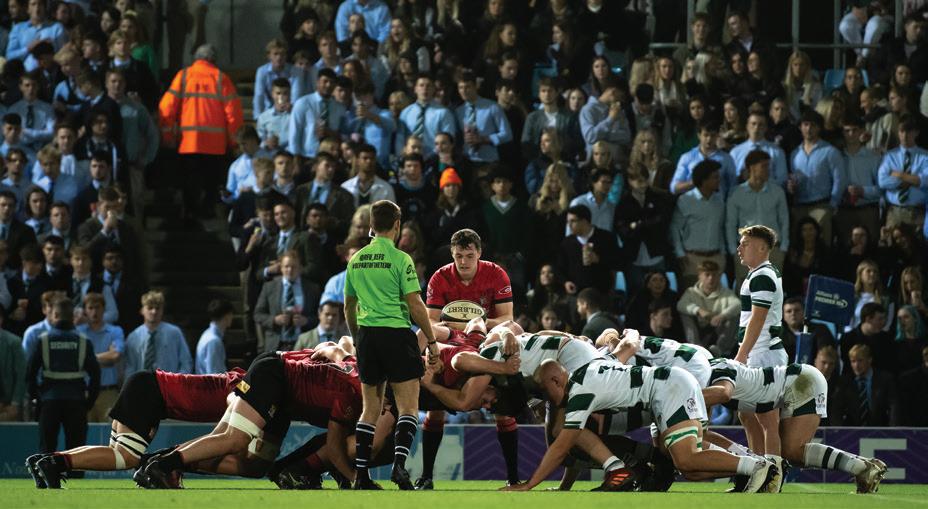
Commenting on the cancellation, a spokesperson for the AU stated, “Due to recent weather and the prediction for the days leading up to 26th October, we took the difficult decision to relocate the women’s rugby match which was planned as part of the ‘Double Header’ Varsity match on Wednesday at Sandy Park. We
were in regular discussion with our part ners at Exeter Chiefs and they confirmed that in order to safeguard the pitch after the period of wet weather, only one match could be played. A large number of tick ets had already been sold for the coaches for the men’s match, and it would not be possible for us to relocate this fixture, whilst still accommodating those who were planning to attend. The University of Exeter Rugby club facilitated an immedi ate refund, via Fixr, to everyone who had booked coach travel for the 4:30pm coach out to Sandy Park. Further refunds were also given to any supporters who bought a Sandy Park ticket and no longer wanted to attend. The women’s match went ahead at Sports Park 3G pitch at 4pm on the same day as well as the women’s 2’s who played Bath at 1pm. We are committed to supporting and promoting women’s rugby and we will be hosting a spotlight fixture at Topsham in Early February with further details on this event to follow shortly.”
Megan Ballantyne and Livvy Mason-Myhill Editor and Deputy Editor
THE University and College Un ion (UCU) has confirmed that it intends to take three days of strike action at the end of Novem ber, alongside a marking and assessment boycott in the new year. This announce ment comes after the union received a national mandate for strike action from its members. In two national ballots, over pay, working conditions and pen sions, more than eight out of ten UCU members who participated in the bal lots voted in favour of strike action. The UCU is the only union in the education sector to receive a national mandate for strike action since restrictive trade un ion legislation was introduced in 2016. University staff have been offered a 3% pay rise this year, but many staff feel that in the face of rapid inflation, this is insufficient. “Not only have we seen real terms pay cuts of nearly 25% over the last nine years, but our pension benefits have been cut too,” says Alex Prichard, president of the Exeter branch of the UCU. “Both these affect junior colleagues the most, those that do most of the teaching, and who are also strug gling with student debt, a cost of living
crisis and high inflation. These are also the people delivering your classes. Bear in mind, we have been in this dispute since 2016, and have been campaigning with students against the marketisation of higher education, and the correspond ing decline in conditions for staff, for well over a decade now. Other UK HE institutions and campus unions are bal loting and striking on similar grounds.”
The University said of staff concerns regarding pay, working conditions and pensions that they are “committed to being a great employer and to providing everyone who works here with an afford able and sustainable pension scheme, as well as fair pay and working conditions.”
The last time Exeter University staff organised strike action was in 2018, but without this national mandate from UCU members. “Last time we went out on strike, UCEA, the employer’s negotiating body, refused to engage with the Union. This time, because all HE institutions have a mandate for action, they might.”
The UCU needed a turnout of over 50% from its membership of 70 000 in order to vote yes to strike action, and achieved 55%. “We don’t have any spe cific demands of our University. We are not striking against Exeter per se. This is a national aggregated strike that will bring all universities in the UK to a halt and is designed to produce meaningful shifts
in the way government and Universities budget for pay and pensions nationally.”
Students who spoke to Exeposé had conflicting feelings about strike action — most expressed support for univer sity staff’s concerns, but but they also worried about the disruption to face-toface teaching that this action will lead to. One student said: “It’s frustrating, as I of course want the lecturers to be paid bet ter and generally treated better… on the other, more selfish hand, I’m a 4th year who had 6 weeks of strike disruption in my first year which were then immedi ately followed by COVID, which obvi ously leaked into second year. After a year abroad where my teaching was still done online, I was looking forward to coming back to Exeter for a normal final year, but it seems this will not be the case. The bottom line for me on a personal level is that as someone on a 4 year course, I should not have had only 6 months of a normal uni teaching experience.”
Alex Prichard responded to these stu dent concerns, saying “There is no one in the UCU looking forward to a strike; we want to be at work doing our jobs. Strike action will of course impact students. But we hope our students will be with us on this, as you have been in each of our other periods of dispute. Our working condi tions are your learning conditions. Fixing the funding model for HE is crucial for
students, in terms of staff/student ratios, and our ability to deliver world leading research and teaching into the future.”
This strike action was announced to students via an email from Tim Quine on Friday 4th November. He told stu dents, “We would like to reassure you that, during any strike days, our cam puses will remain open. Academic col leagues who are not members of the UCU (or who choose not to strike) will continue to teach and we will endeavour to ensure support and services remain available to you wherever possible.”
A Guild spokesperson told Exeposé: “The Guild are aware that UCU have voted nationally in favour of industrial ac tion in relation to pay and pensions. This may impact our student community in many different ways. We want any stance and action we take to be informed by our members, so we’ll be hosting a poll in the coming weeks to see how our students view both the causes and proposed action.
The Guild will do its utmost to ensure that students are supported, and we’ll work collaboratively with UCU and the Uni versity to ensure students’ questions and concerns are raised and considered in all discussions. You can find more informa tion about the industrial action at https:// www.exeterguild.com/industrial-action”
A University spokesperson told Ex eposé: “Providing our students with an
excellent educational experience is one of our top priorities and, since the ballots were announced in August, we’ve been working closely with the Students’ Guild and Students’ Union to ensure any meas ures we put in place to protect our stu dents’ experience and academic outcomes are the right ones for our students and their course. As a university, we also re main committed to being a great employ er and to providing everyone who works here with an affordable and sustainable pension scheme, as well as fair pay and working conditions, as demonstrated by the recent decision to make positive changes to the pay scales of colleagues on grades B-F across the University. We know that the prospect of strike action may be unsettling for many of our students and have developed a Fre quently Asked Questions page so we can seek to answer any queries our students may have, and we will keep this page up dated throughout this period. We would also like to highlight the resources that are available to support our students, if needed. This includes our self-help tool, SilverCloud and our Wellbeing Services at both the Exeter and Cornwall campuses.”
9 NOV 2022 | EXEPOSÉ 3 NEWS
“We [have] seen real terms pay cuts of nearly 25% over the last nine years” UCU announces three days of strike action at the end of November
Joshua
Image:
“Discriminative, unfair, sexist”: Women’s Varsity relocated
Images: Kieran Moore
Image: Kieran Moore
The playing surface at Sandy Park after the Men’s Varsity
As a university, we also remain committed to being a great employer
Continued from front page...
We encourage you to reach out for support if you are struggling with your mental health or know a friend who may need extra help — whether it’s being impacted by studies, finances or personal reasons.”
Mike Shore-Nye, Registrar at the University of Exeter said: “We are deeply saddened by


“In Harry’s case the safety net did not operate”
Harry’s death and the family's loss. Everyone who knew Harry is devastated by his suicide at home during the Covid19 pandemic. We continually review and improve the wellbeing support we provide based on evidence and learnings, including from tragic cases such as Harry’s. We will consider the coroner’s detailed conclusions in this case and make sure we learn the lessons to enhance our support and operations further, specifically in the areas recommended by the Coroner.
We are acutely aware of the current mental health challenges for young people and the difficulties accessing external services and have invested significantly in student welfare and wellbeing support
in recent years. We have set up a bespoke partnership with local NHS and support services for students with complex mental health needs, depression and anxiety. We provide student support services seven days a week both on campus and in the community, including throughout the Covid19 pandemic. Student health and wellbeing is always the University of Exeter’s top priority.
We also welcome and support the recent Universities UK guidance on suicide prevention and their recommendation on a trusted student contact when there are serious mental health concerns. A number of the UUK recommendations have already been implemented at the University of Exeter, and we will implement
all the recommendations.
On education, during the pandemic all students were supported with a no disadvantage guarantee to ensure their assessment marks didn’t suffer as a result of the difficult circumstances surrounding the pandemic. And we continue to take a compassionate and supportive approach to all students who are struggling with personal circumstances and the societal pressures we face today.”
“It is a case of supply and demand:” Students speak out over the search for housing
Joshua Hughes Editor

THIS year housing has again become an area of concern for many students. Student numbers in Exeter have increased by 33 per cent over the past five years (from 22,540 in 2017/18 to 30,012 in 2021/22) and as a result of this, the demand for housing has increased significantly. For many it is a time of stress and strain and alongside midterm assessments creates an unhealthy environment.

find another property and also called to attention that the rent excluding bills such as gas and electricity “wasn’t mentioned anywhere until we read through the contract (and after we put down a deposit”.
The majority of students who spoke to Exeposé highlighted that the cost of living crisis has significantly affected their experience with housing. One student commented that “searching for a house at a low price range in Exeter was difficult” and that that the majority were “above the range my [their] housemates and I [they] were looking for”. Another student commented that as a result of the recent announcement that the government’s energy support scheme ending earlier than expected “bills from April onwards will definitely make a hit on our finances”. Exeposé also asked students about whether the price of their rents was increasing for next year and the majority of respondents said they had. For one student, the price had gone up by “520 pounds” and another had their rent increased by “17 pounds” per person, per week. Moreover, this student had previously “had bills included” but the bills now “exclude gas and electricity”. The student in question was forced to
Alongside the cost of living crisis, securing a new house for next year was highlighted by those that responded to our journo request to be having a negative impact on their studies and personal lives. One student noted that the timing of the housing rush was extremely inconvenient as it was occurring “during reading week” and that they have “midterms before and during it”. The student was quick to underline that they “should be studying instead of trying to find a place to live”. Another student stated that their “house has been the most stressful part of my [their] year”. One student also stated that “finances are a bit of a worry”, suggesting that the mix of the cost of living crisis, the rush to secure housing and midterm assessments is proving to be stressful for some. When asked if they felt the University provided enough support for students in external accommodations, students were quick to suggest that the support was not sufficient and that more was needed. One student commented that they thought the University “provide the basic resources ok” but “their help was limited” and they were unable to “offer much beyond this”. Another student proposed that “more advice and even financial support should be available” and underlined that the “uni has a duty to care for its students”.
When asked if they had had any issues with their landlord or accommodation providers, students' responses were mixed. One student highlighted that their landlord “is based abroad so employs a property manager”. The student went on to
state that the manager had been “lazy and left our [their] house alone over the summer to develop several key issues.” Another student stated that, having been told they would “get early renewal for our [their] flat this year”, the landlord “put it on the market unexpectedly”. This led to the student “stressing over this right before a midterm.”
Exeposé reached out to a private landlord to ask their perspective on rent increases this year. The landlord stated that rent increases were “in line with inflation, mortgage costs and maintenance costs. Those all-inclusive [rents are] making estimates on future energy costs.”
The landlord argued that “to help students the government need to recognise this and increase accommodation allowances for students. Private rental properties are limited however the demand is increasing due to student population increases each year. Basically, it is a case of supply and demand.” The landlord went on further to state “there are many good local private landlords in Exeter who are ready to help responsible students with their housing requirements.” The landlord finally added that because “securing a house is a completely new experience for students, they should seek advice from the Uni and Guild.”
Exeposé also reached out to Cardens Estate Agents about the increase in student numbers and rent costs in Exeter. Jon Carden stated that “Students@Cardens handles the letting of around 300 student properties in Exeter, the majority of which are established HMO’s (House in Multiple Occupation).” When asked about the number of properties let in relation to the increasing number of students in Exeter, Carden stated that “there are tight controls put in place
by Exeter City Council ensuring that only existing HMOs can be let to students and any homes currently in family occupation should remain in family occupation. So in that respect the number of established houses for letting to students doesn’t alter and the increase in student numbers each year is picked up by the large purpose built apartment developments. This is a common planning approach in many of the UK’s university cities.”
Exeposé also asked how Cardens can justify increasing rent while student loans are not increasing. Carden stated that “the rents for student housing in Exeter are set by market forces and therefore even when student loans aren’t increasing, if the demand for certain types of housing is strong then rents can rise.”
He continued “The larger HMOs that are closer to Streatham Campus will generally be at the upper end of the rent scale and those houses generally rent first. As at 31st October 2022 we have received applications to rent around 150 properties, and it is the houses in that category that see the greatest demand. Those numbers of ‘lets agreed’ are far greater than has been the case in previous years at the end of October.”
A spokesperson for the University said: “We completely understand that
moving to new accommodation, or looking for housing, can be expensive and bring concerns that many students have not had to face before. The University has a range of resources and information available for students, including the Move Smart campaign, while the Students’ Guild Advice team are also available for help and advice as needed. The University also provides Hardship Funds support for students who may be in financial difficulties, including rent and general living costs, where applicable.”
A Guild spokesperson also commented “Our Advice team are here to give you confidential, impartial advice on issues including housing. Our website has lots of resources and tips to help with housing issues, from knowing your rights as a tenant, to how to deal with common issues like pests, housemate disputes and property repairs. We would encourage any students having issues with housing to contact us at https://www.exeterguild.com/advice
One of Guild President Lily’s priorities this year is working with the University on a review of their ‘affordability principles’ for accommodation, as well as looking at the suitability of letting terms, so they are in line with student's needs.”
9 NOV 2022 | EXEPOSÉ 4 NEWS
Image: Toby Brisley If these issues affect you, you can get in touch with: Samaritans 116 123 Exeter Student Nightline 01392 724000 É
Image: Alice Armstrong Evans
Image: Alice Armstrong Evans
Student numbers in Exeter have increased by 33 per cent over the past five years
AT the start of term a large number of students were put up in hotels due to delays in the completion of their accommodation. Approximately 130 students allocated rooms in block A and B of Hill View wouldn't be able to move into the new accommodation till October 22nd.
Exeter students forced to live in Holiday Inn Express after private accommodation delays President of NUS ousted over antisemitism allegations

Hill View Place on Glenthorne Road was due to be completed on October 7th. Students were informed a week before their move in date by Prestige Student Living. Students were offered £35 a week for travel expenses, £200 for the extra one-week delay, and
a continued £35 a day for meals.
Prestige Living Student Living spokesperson, said: “When advised Hill View Place would be subject to delay, we immediately contacted all students to offer them temporary accommodation in Exeter and provided them with daily meal vouchers and further compensation for each week of delay. Our team has been based at a local hotel throughout the week, supporting the residents due to stay at Hill View Place by organising welcome meetings and social events. Unfortunately, when we were advised by the landlord that the building would be subject to a further one-week delay, we were unable to extend our group booking at the hotel for a small
number of students due to it being school holidays next week. We took the decision, in the interest of the students’ wellbeing, to relocate them as a group to another hotel in the city. We were advised by the landlord earlier this week that all students will be able to move into Hill View Place from 27th October. We remain in constant communication with all students affected."
A University of Exeter spokesperson, said: "We are extremely sorry and concerned that some students have faced these issues at the start of term. The University has been in regular contact with the external management company to offer support, including temporary use of our accommodation."
University of Exeter saves over 45,000 kg CO2 a year with new solar panels
Livvy Mason-Myhill Deputy Editor
AT Exeter's Streatham Campus, the Harrison building's roof has been fitted 700 solar panels, which have more than 700 kilowatts. This installation is helping the University meet its goal of achieving carbon net zero by 2030 and advancing its Strategy 2030, which aims to take effective action
against the climate emergency.
The University is continuing this transition to clean renewable energy through the installation of 700 photovoltaic (PV) solar panels on the roof of the Harrison building. This minimises the University's dependency on fossil fuels. With a projected output of 212,591 kWh per year, the panels will avoid 45,282 Kg of CO2 annually.
The installation was made possible thanks to money given by
Research England to the Centre for Resilience in Environment, Water and Waste (CREWW) project, which is currently being constructed on North Park Road.
The project's goal is to achieve "Net Zero in Operation" status from the first day of operation.

The energy used by CREWW will be offset by the power produced by the solar panels on the Harrison building. The University of Exeter reduced its annual carbon footprint by more
than 100,000 kg in July 2020 by installing three solar panels on its Streatham and St Luke's campuses.
“We are committed to maximising our renewable energy provision and our work doesn’t stop there, as we have further plans to install more PV panels on our Creative Quadrant building, which is currently being built in the University of Exeter Business School,” said Andy Seaman, Energy Manager at the University of Exeter."


AS a result of “significant breaches” of the organisation’s policies discovered after a protracted independent investigation into accusations of antisemitism, the National Union of Students (NUS) has ousted its president.
The charges of misconduct are believed to be centred on statements Shaima Dallali made in the past, some of which date back as far as ten years before her election as NUS president in March of this year. The panel’s judgment could be challenged, according to the NUS. Until a new president can be chosen, Chloe Field, an NUS Vice President, will serve as the board’s acting chair.
The NUS stated: “In strict accordance with rules around employees and confidentiality, we will not be sharing any further details on the investigation into the president.”
As a former City University of London student union president, Dallali was chosen to lead the NUS for a two-year period beginning in July. However, the investigation’s findings led to her being suspended from the position in August.
The Union of Jewish Students (UJS commented that it “respects the decision of the National Union of Students to dismiss their president. Antisemitism in the student movement goes beyond the actions of any individual and this case is a symptom of a wider problem.”
9 NOV 2022 | EXEPOSÉ 5 NEWS
Image: Joshua Hughes
The investigation’s findings led to her being suspended from the position in August
Elen Johnston
Livvy Mason-Myhill Deputy Editor
Image: Elliott Brown , Flickr

TECH

LIFESTYLE ARTS + LIT
MUSIC STUDY BREAK SCREEN
Affirmative action under threat
Charlie Gershinson considers the need for affirmative action and its future in the US
CORNELL Law School defines affirmative action as “a set of procedures designed to; elimi nate unlawful discrimination among applicants, remedy the results of such prior discrimination, and prevent such discrimination in the future”. While to many, this is a reasonable programme which compensates for the legacy of slavery and systematic racism in the country, it is often condemned as an unnecessary process that opens up yet another front in the culture war.
As the majority-conservative Su preme Court prepares to hear two cases on affirmative action — Students for Fair Admission v. President and Fellows of Harvard College and Students for Fair Admission v. University of North Carolina — it is worth looking back on the his tory and qualities of affirmative action.
opposition from President Andrew Jackson and the federal government.
The 1964 Civil Rights Act signi fied the culmination of the establish ment of affirmative action as a key social principle within the US — a process that had begun with President Franklin D. Roosevelt’s efforts to en sure equality of employment within the federal government. This was par ticularly codified under Title VII of the legislation, which prohibited discrimi nation in hiring and firing practices. Title VII also proved to be particularly controversial amongst contemporary conservative politicians, who sug gested it would enforce a racial quota.



the basis of the Harvard case where it is claimed that Harvard keeps the number of Asian American students artificially low despite year-on-year in creases in Asian American applicants.
FEATURES EDITORS:
While affirmative action is, today, discussed and implemented in the con text of academic admissions, its origins lie in the post-civil war efforts to cor rect the balance between whites and re cently freed black slaves. General Wil liam Sherman advocated for the “forty acres and a mule” policy, which would have seen the land and goods of Geor gia used as reparations for black fami lies. The policy was shelved after strong
The use of affirmative action in an academic context has been fur ther established since the Supreme Court’s 2003 decision in Grutter v. Bol linger, which allowed universities to use race as a criterion for entry for the purposes of ensuring a “critical mass” of minority students were al lowed entry into higher education fa cilities. However, both the liberals and conservatives on the court concurred that affirmative action would not be necessary in twenty-five years’ time.
As we approach the 2028 deadline, it is perhaps worth considering the modern day need for affirmative action, as well as its limitations. Its most clear limitation is a natural repercussion of its aim: as some historically disadvan taged races are given leniency, other rac es are disadvantaged. This has formed
Despite clear drawbacks for the current form affirmative action takes, many still feel there is a need to stimu late diversity within campuses. David Oppenheimer, a California law profes sor and avowed social liberal, has re searched the necessity of affirmative ac tion to achieve diversity. He concluded that affirmative action was such a suc cess academically such that “it remains the blueprint for virtually every highly selective college in America today”.
While for many the academic argument of affirmative action re mains intact, it is under threat by not only the Supreme Court but also the American electorate. An opportunity for the voters of California to over turn a 1996 ban on affirmative ac tion failed by fifteen points the same day the state voted for Joe Biden over Donald Trump by almost thirty points. This also came after a 2019 Pew poll revealed that almost seventy-five per cent of Americans, including sixtytwo percent of black Americans, op pose race being a factor in admissions.

Revolution 2.0?
COULD Iran’s current protests be the beginning of a revolu tion? The death of Mahsa Ami ni, a 22-year-old woman allegedly killed by Iran’s ‘mortality police’ has mobi lised vast swathes of Iran’s population to protest against restrictive dress laws.
The current protests have been cited as being more “geographically and socially diverse” than the last major event, the 2009 ‘Green Move ment’. Do this year’s uprisings, however, have the momentum to over throw an authoritarian regime when the pro testors are faced with bru tal, Soviet-style suppression?
Iran’s recent history pre sents issues for Western pow ers as they decide how to respond.
When the democratically elected Prime Minister, Mohammad Mosad degh, nationalised the country’s oil in dustry in 1951, the UK government deemed it as a threat. Having estab lished the Anglo-Iranian Oil Company after World War II to prolong Britain’s hold on Iranian oil fields, Mosaddegh’s government’s decision pushed MI6 to wards undertaking a secret endeavour to replace the democratic leader with someone more favourable to the West.
Leveraging the rapidly developing cold war, MI6 convinced the American CIA to join the operation, which was code-named TPAJAX. According to de-classified documents, the CIA was to “through legal, or quasi-legal, meth ods” remove the Mosaddegh govern ment, and “replace it with a pro-West ern government”. The same document ends by saying that the operation con cluded: “in literal revolt of the popula tion, [redacted]. The military and secu rity forces joined the populace, Radio Tehran was taken over, and Mossadeq was forced to flee on 17 August 53”.
Ten years later, the Shah launched the White Revolution; a programme of rapid industrialisation, westernisa tion, and social reform, which disrupted the social contract between the ruler and the ruled once again. Beginning with the dissolving of a democratically elected government, the Shah moved on to an ambitious programme of re distributing wealth and land, and intro ducing reforms in health and education.
The 1953 coup d’état recognised
the influence of the clergy but, as the White Revolution continued, Shi’ite leaders criticized the “liberalisation laws concerning women”, saying that they went against Islamic values. In tandem with the legislative liberalisation, the land reforms also broke up swathes of land which “were held under charitable trust (vaqf)”.
Going against the clergy set the Shah up against a vast network of opponents ready to, meta phorically, take up arms. Although the White Revolu tion stirred public discontent, the deci sion to go against the clergy acted as a tipping point towards an all-out revolution.
The 1979 revolution conjoined the efforts of the National Front, the Tu deh (Party of the Masses of Iran), other groups, and the Shi’i ulama — religious scholars. After a newspaper published criticisms of Khomeini, an outspo ken critic of the shah, “thousands of [religious school] students took to the streets”. When the shah’s security forces brutally suppressed the forces, the Shi’ite view of martyrdom only emboldened the protestors. After the shah fled the country, a compromise was made with the Regency Council which was meant to rule in his absence. The Council agreed to allow Khomeini back into the coun try. Following a referendum, “Khomeini declared Iran an Islamic republic”.
The comparisons between the un rest and subsequent revolution in the 1970s, and the protests sparked by the killing of Mahsa Amini, naturally lead one to consider whether the current unrest could escalate into a revolu tion. The country has been subjected to a period of declining human rights causing widespread, but largely ‘quiet’ discontent — akin to the anger caused by the reforms of the White Revolu tion. Therefore, like the criticisms of Khomeini, the death of Mahsa Amini, and countless others since, could be the ignition source to replace the cur rent authoritarian government with something acceptable to the people.

8 Image: Flickr, Garry Knight
Features
Michal Wyka looks at the history of civil unrest in Iran and the outlook for the current protests
9 NOV 2022| EXEPOSÉ
Sherman advocated for [...] reparations for black families
Many still feel there is a need to stimulate diversity
The country has been subjected to a period of declining human rights
Oliver Lamb and Austin Taylor
Image: Darafsh, Wikicommons
Image: Daderot, Wikicommons
Civil disobedience and samba
XR Devon Drummers is one of a number of bands af filiated with the protest group Extinction Rebellion. XR, which calls for immediate action to combat cli mate change, has divided opinion since its inception four years ago. Ben edict Thompson spoke to XR Devon Drummer’s Maurice Spurway about the movement’s message and methods.
BT: How long have you been part of Extinction Rebellion, and what motivated you to join?
MS: I’ve been with Extinction Rebellion since December 2018, two months after the launch of XR on 31 October 2018. I had been a Climate Campaigner with Exeter Friends of the Earth for about 25 years prior to then, but had become disillusioned with traditional methods of campaign ing because they just didn’t work. Ex tinction Rebellion has adopted a style of activism based around non-violent civil disobedience, which I thought might just make a real difference.
BT: What brings you out onto the streets of Ex eter every Sunday to protest?
MS: Every Sunday afternoon the XR Devon Drummers have practice sessions. Drumming is the beating heart of protest, and is very much associated with the direct action style of activism. Why do I do it every week? It’s because I need to be able to look my grandchildren squarely in the eye when they ask me, “Grandad, what were you doing when the world was unravelling, and govern ments were doing nothing about it?”
Drumming is the beating heart of protest
BT: What change do you think needs to be imple mented by the government?
MS: Power concedes noth ing without a demand. XR has made three demands of the government:
1: Tell The Truth: Government must declare a state of emergency on the climate and ecological crisis.
2: Act Now: Things must hap pen immediately. Setting a target of 2050 is far too late, and creates com placency. The scientists tell us that the UK must be making eight per cent reductions in emissions every year. And biodiversity protection needs to be ramped up, not torn apart.
3: Be The Change: The Government must implement a binding Citizens’ As sembly on this crisis. The Government is too constrained by the need to stay in power, and will not make the necessary difficult decisions. It is only ordinary citizens informed by the best science available, that can break the logjam and come up with a set of policies that will successfully meet the challenges ahead.
The Republic of Ireland held a Citizens’ Assembly in 2016 to decide on
whether to legalise abortion or not. The reason for this is that abortion was an in tractable issue that politicians were una ble to make a decision on. The Citizens’ Assembly voted to legalise abortion.
BT: Do you think that end ing the use of fossil fuels would worsen the current cost of living crisis? And what would your alter native be for generating energy?
MS: No, it would not. It is abso lutely clear that the fastest and cheap est option right now is to reduce the amount of energy we use (and waste). This should have been a government priority from the time we unequivo cally knew about this crisis, way back in 1989. For example, the UK has the most energy inefficient housing stock in Eu rope. A programme of super-insulating the UK’s 25 million houses should be gin immediately and will pay for itself within a decade. Clearly we will need to generate some energy, and the fastest and cheapest way is via renewable en ergy. Such decisions will of course need to be made by a Citizens’ Assembly.
Our focus currently is on stopping new fossil fuel extraction and fossil fuel subsidies. The International Energy Agency has said that we must stop all new fossil fuel extraction because we have a limited carbon budget: to stay below 1.5 degrees of global warm ing, most of the carbon that fossil fuel companies are planning on extracting and burning has to stay in the ground.
as we are increasing our numbers.
BT: What are your views on the protests in London, e.g. protes tors supergluing themselves onto public transport, people blocking roads and bridges? Where does protesting cross the line? And what would you say to someone who ar gues that this is passively violent due to the disruption it causes?
MS: This is an important ques tion. Environmental groups have been trying to raise the alarm and get meaningful action on this issue through more traditional methods like petitions, marches and political lob bying for over 30 years and they have been almost completely ineffectual.
‘passively violent’ is in effect merely play ing with words, and has no significant meaning. We are non-violent. Full stop.
BT: There have been a lot of ar rests of Extinction Rebellion mem bers, would you or anyone else in the XR Devon Drummers be will ing to be arrested for protesting?
MS: The new Police, Crime, Sen tencing and Courts Act 2022 has added a new charge: causing too much noise. This of course places much focus on drumming, as we do make a lot of noise. XR drummers throughout the whole of the UK have made a conscious decision to carry on, knowing that they are risking arrest. And we are still willing to protest.
dinary citizens. We do still block roads and bridges but these types of pro tests are being phased out as we ramp up our focus on the ‘bad guys’. We are fully in solidarity with working people who are caught up in the same toxic sys tem that is creating ecological mayhem.
BT: How would you respond to claims by the Metropolitan Police that Extinction Rebellion protests around the country have cost the taxpayer more than £50 million since 2019?
MS: We never asked the Metropoli tan Police to spend so much money in preventing us carrying out legitimate protest. We are fully trained up and capable of policing our own protests.
BT: So do you think people are turning a blind eye to fossil fuel use?
MS: It’s a natural reaction when you see a government that is blatantly not acting on the crisis, that for many people they will respond with compla cency. The UK government has de cided to unnecessarily issue 100 more licences for the extraction of more oil and gas from the North Sea. And this is breeding a sense of hopelessness. But 80 per cent of the UK population still realise that the climate crisis is upon us. And that is the reason why mem bership of XR Exeter has more than doubled in the last year. We offer hope.
BT: Has your group, XR Devon Drummers, seen an increase in sup port? Are more members joining?




MS: I have to say that drum ming is a great way to get involved more fully within Extinction Rebel lion. It’s good fun. We were outside Downing Street with the drummers last week when Liz Truss was tender ing her resignation. She would have liked to have made the announcement outside, but the noise we were making forced her to make the announcement inside. The fact that we make such an impact encourages new rebels to join the band. And that is happening now

We really do wish we didn’t have to do this, but civil disobedience does work. If anyone had thought of a bet ter alternative, then we would have tried it. But no one has. Civil disobedience has had a long history of success, but was always unpopular at the time it was happening. The suffragettes were hated at the time, but we now look back on the women’s suffrage protests as being a valuable improvement on democracy.
And the law supports our conten tion that the disruption that we cause is proportionate. Many rebels who were arrested and went to court have found that the judiciary takes an enlightened view of the need for commensurate protest in order to protect our democ racy, and XR rebels have been regularly acquitted by judges and juries alike.
All our protests are strictly non-vio lent. It is a red line that we do not cross. To suggest that the necessary and pro portionate disruption that we cause is
But Extinction Rebellion is now en tering a new phase of protest. We recog nise that our success is as much down to mass participation as it is to civil disobe dience. That is why we have a plan to sur round Parliament with at least 100,000 ordinary citizens (and rebels) from 21 April 2023. We believe that this level of mass protest will create the change that we seek. With that level of numbers it is unlikely that the Met Police will be able to make any meaningful arrests.
But even so, £50 million is about the same amount that the Metropolitan Po lice spent on policing football matches during the same period. And it must be recognised that if we do not act on the climate and ecological emergency then the full costs will be measured in trillions.
BT: And finally, what are your views on the leader of Extinction Rebellion, Roger Hallam, say ing that he would block an am bulance carrying a dying patient?
with at least 100 000 ordinary
BT: After the COVID lock down, small businesses are trying to get back onto their feet around the country, and protests around the country are arguably not help ing this. How would you respond?
MS: You may have noticed that Extinction Rebellion has changed the focus of our protests since COVID. We are now concentrating far more on the government and those businesses like Shell, BP and Barclays who are doing the most to destroy the future of or
MS: An important consideration here is that Extinction Rebellion has a non-hierarchical holacratic structure. We have no leaders. We are all crew. Roger Hallam is a founder of XR, but plays little part in the detailed design of our protests nowadays. Roger is inclined to say things for some effect, and the reasoning behind his statement has been ignored; that there are many billions of lives that are at risk if governments do not act. But this is a purely academic and theoretical discussion. The reality is that XR has a clear and strict ‘blue lights’ policy which means we always let emer gency vehicles through our protests. And we always inform the emergency services of where we will be, so that ve hicles can reroute around our protests.
9 NOV 2022 | EXEPOSÉ 9 FEATURES
Benedict Thompson talks to Maurice Spurway of XR Devon Drummers about the climate crisis, direct action and risking arrest
Image: Stefan MÜller (climate stuff), https://creativecommons.org/licenses/ by/2.0/deed.en, Wikimedia Commons
More traditional methods... have been almost completely inef fectual
We have
a
plan to
surround
Parliament
citizens We must stop all new fossil fuel extraction because we have a limited carbon budget
CONNOR GODDARD & ANABEL COSTA-FERREIRA
Do exams pass the test?
Carden Cappi and Joe Vinton take a deep dive into the University’s exam policy

BY the time you arrive at university, it is safe to assume that you will have had your fair share of exams. The education system and assessments are almost synonymous: in the same way, black implies white - academia implies examination. This will never change. But surely you would think that, after the COVID-19 pandemic, educators across the country would have used lockdown as an opportunity to reassess the traditional principles of in-person timed tests. For subjects in the humanities, this is a question that has been neglected for far too long. Curriculum designers need to consider if their outmoded exams pass the test.
Examinations predate the conception of the university as we know it today. Used as a method of establishing a meritocratic learning system based on standardised testing, in-person exams have long been argued to ensure fairness.
In simple terms: you get the same time, resources, setting and conditions as candidate x, so in


theory, you both have the same opportunity to succeed. This notion should not be discarded and I think this is one of the main causes as to why the British government and Ofqual are trying to get exams to “head back to normality” in 2023.
since 2020 the option 1, 2 and 4 exams are still included in many humanities modules. This is evidence that exams might be evolving with the times.
AS many of you may have heard (or perhaps even seen around campus) there has recently been a campaign to create a more affordable meal option for students on Streatham and St Luke’s campuses. The two pound meal deal has now, as a result of this effective campaign, been launched and is being served to students in DH2 on weekdays 11-2:30. As students, we are unable to control out timetables, many of us end up staying on campus across lunch hours — whether we are studying in the library, at a lecture or in our second seminar of the day.
Over the last couple of years the options for lunch on campus were becoming increasingly expensive year on year here in Exeter — with a meal deal at marketplace costing £4.50 and a bowl of the infamous cheesy chips at Ram priced at £3.75. These constantly rising costs made it increasingly difficult
For those subjects like Maths, Physics and Economics which rely heavily upon procedural memory it makes sense that in-person exams are still being utilised. However, for subjects like English Literature or History, the notion of a closed book in-person exam still baffles me. Higher education institutions have weighed up the pros and cons of in-person exams and it only takes one glance at the University of Exeter handbook to see that COVID has changed the way students are assessed. Before the pandemic the idea of online exams would have been swept to one side but
So, why is Option 3 outdated for certain modules? What do they even prove? That you can work under stress? We are stressed all the time anyway, so that point doesn’t count. And considering it is the 21st century with the internet almost always accessible, the need to prove that you can recite certain theories is not timely -—
and if the internet should fail, knowing a certain theory will be the least of your concerns. Additionally, if you ask me, I will not be able to provide a cohesive and somewhat sensible text within an hour or so and chances for having to do so later without any resources are slim. Having openbook exams is so much more sensible and can prove so many more skills that are relevant for our time. Needless to say, it doesn’t look like traditional in-person exams are going away soon. And we are not

calling for universities to abolish them, as they can be useful in certain modules and contexts.

However, we think that each module and its Intended Learning Outcomes determining the exam method should be reconsidered and innovative adjustments to the exam method should be made.
to find a nutritious and filling meal that does not break the bank.
This was not been helped either with the addition of Starbucks this year, replacing what many students considered the slightly more affordable Costa, while students’ other café option is the

already overpriced but beloved Pret. The leaders of the two pound meal deal campaign noticed this discrepancy between what students can afford and what was being offered on campus, and decided to create a better, more affordable option for students.
The campaign was run by a group of students and VP Liberation Emma de Saram. They suggested utilising the previously not in service Italiano space in DH2 as a canteen. The campaign took inspiration from ‘Mensas’ in Germany (translates to canteen) which are affordable student restaurants — in Germany these are so embedded in university culture that some institutions allow you to purchase a Mensa Card to pre-load money.
Two pound hot meals will not immediately eliminate the problem of the cost-of-living crisis for students, but it will help to ease some anxieties about how to manage their bills at a time of the year when their
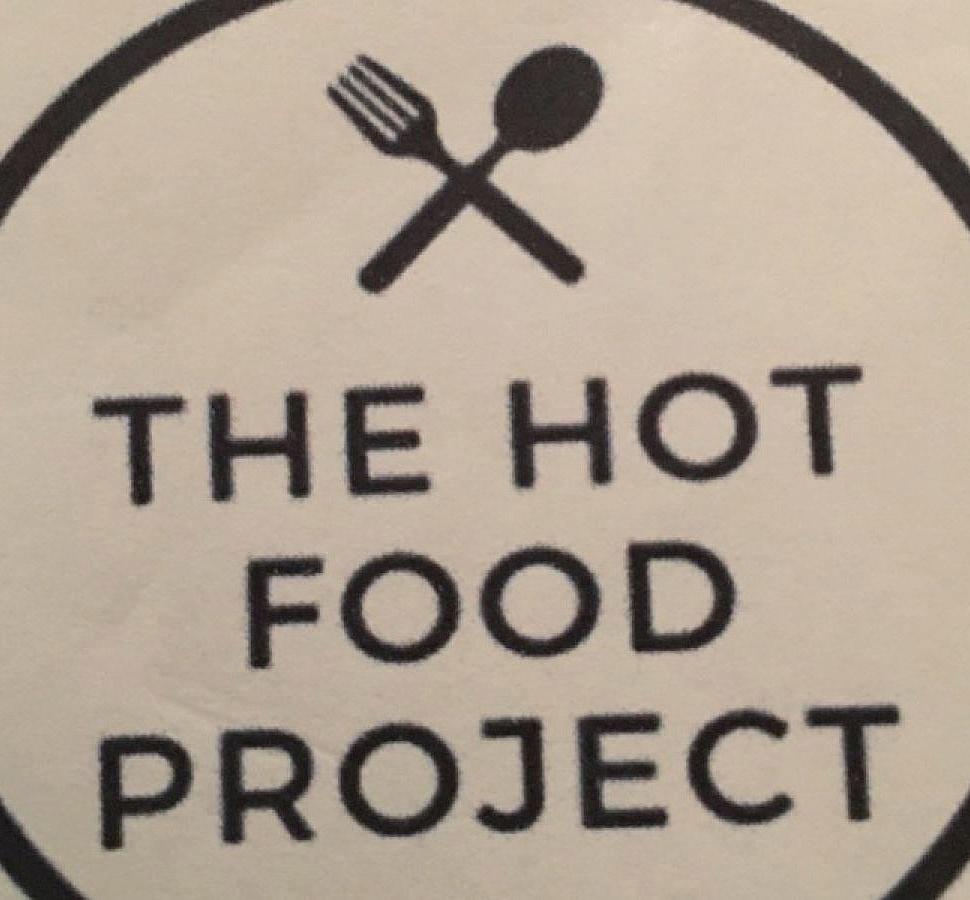
Comment COMMENT EDITORS
09 NOV 2022| EXEPOSÉ 10
workload and stress is increasing.
[There was a] discrepancy between what students can afford and what was being offered on campus
How will the University’s £2 hot meals help tackle the cost of living?
Anabel Costa-Ferreira, Comment Editor, discusses the University’s new project for struggling students
Image: alexbcoles, Wikimedia Commons
Examinations predate the concept of university as we know it
The need to prove that you can recite certain theories is not timely
Image: Food Exeter Image: South West Londoner
The campaign took inspiration from ‘Mensas’ in Germany
How effective is performance activism?





Don’t punish the public for issues caused by big corporations
IT is no secret that the world is in a dismal state. In the last few months this country has seen the removal of two Prime Min isters, the triumph of a lettuce and a bizarre protest involving Vincent Van Gogh, and a can of tomato soup. The protesters belonged to the Just Stop Oil initiative, and af ter glueing themselves to the wall beneath the famous Sun flowers painting, prevailed upon the public to choose which was more important, art or life?
performance, alienating others should not be the goal. If half of the press is focused on wheth er they were right or wrong, the less attention is being paid to the actual movies behind it. Shock us, confuse us, make us question what is going on and yes make us angry. But make it clear that we should all be on the same side. Make us an gry at the companies profiting from the destruction of our planet. It is not the fault of the people in that room that the world is literally burning.
Despite the painting not be ing harmed their actions raised an other question; is there a point to performance activism? Do these wild displays help or hin der the cause they fight for?
In my mind they can do both. Half the goal of this type of pro test is to shock, something they clearly achieved by targeting one of the world’s most famous works. When spoken to about their motives, they addressed that their actions could be seen as alienating but that they “were not here to make friends.”
I would argue though that is exactly what they should be do ing. We all know that in the fight against the climate crisis, we all have to be in this together. So while I admire the protesters and their motives behind this

It is not the fault of art lovers that the cost-of-living crisis is making it impossible for people to fulfil their basic needs. Take the prob lem home to those who caused it, like “To BP or not to BP” when they filled the British Mu seum with their music to bring attention to the partnership between the two compa nies. Or the protest ers that dismantled their cardboard and paper mache versions of the company logo inside the building, forcing them to clean up at least one mess.
I admire their passion, their cause and their de termination. I just hope their next protest is a little less dividing.
Performance activism is the only way to make us listen
BY some perspectives, per formative activism can be considered surface-level activ ism, refusing to acknowledge the his tory behind the very things it stands to fight for. However, in a recent string of making overt politi cal actions, particularly the incident of the tomato soup thrown over the Van Gogh painting, an act that caused particular anger toward the activists has brought to light several different reactions on how activism should be carried out. Additionally, Animal Re bellion protestors poured milk over the Harrods floor to call for plant-based food. In a way, despite the purpose of the chosen way of activism, it overall brought to popular discourse on why the activists did what they did.
activism to make a political statement in order to bring attention to a cause, these acts- deemed disagreeable and disrespectful have the most effective way of bringing the public’s attention together to discuss these issues more than other acts which eventually never spark headlines and conversations.
Alongside relating the public’s rea sons for being displeased with the ac tivists causing damage to the frame of the painting, there is always the con versation that eventually brings up on what the ‘activists’ were trying to bring attention to and the better ways in which their political statement should have been carried out. These forms of extreme acts are pointed out specifi cally in public discourse for the way in which the majority of people disagree with these ‘activists’, which can bring attention to the issue itself. Although it is arguably one of the best forms of
Third years under pressure
Ultimately, surface-level performa tive acts makes understanding these po litical issues accessible as they’re con sistently trending on social media. This inevitably allows everybody, no matter what previous knowledge of politics they may have, to engage with impor tant issues that affect them, which they otherwise wouldn’t have known of.
No matter the risk of superficiality with social media performative activ ism, it is a medium on which virtually everyone is part of a wider online com munity where we exist. This inevitably allows everybody to successfully gener ate exposure for political movements, trending swiftly on everybody’s feeds. This simplistic support for a cause, any political cause, has the unique po tential to allow others to engage with these issues and then be able to initiate long-term change. Despite the superfi ciality of the act, it undoubtedly sparks a conversation and promises a virtual landscape on which both local and global campaigns can be organised.
 Connor Goddard, Comment Editor, discusses pressures of final year and the pressure to start career searching
Connor Goddard, Comment Editor, discusses pressures of final year and the pressure to start career searching
ON Tuesday last week a Ca reers Fair was held on campus to help give unde cided final year students a bit more guidance on what to do when they leave university in the summer. So early on in the year so many thirdyear students are already scrambling to find grad jobs or think about where they want to do their masters. Obviously it’s sensible to plan ahead but is there a need for stu dents to stress themselves out so far in advance? A lot can change in
eight months and your priorities then might be different to the ones you have now. In my opinion, it can be so easy to get so wrapped up think ing about your future plans that you forget you need to make the most of the time you have left in uni.
You allow yourself to focus on your current studies rather than be come bogged down in the pressures of constantly thinking about the future. Of course, I’m not saying that stu dents should completely forget about their post-undergrad plans until May next year, but I think they should be careful not to let it completely occupy what, for many, will be their last time being at university with friends. Fairs like this are of course helpful yet also a scary reminder of how quickly the end of your degree comes around.
11 COMMENT 9 NOV 2022| EXEPOSÉ
Freda Worrell
Mahnoor Imam, Online Music Editor
Comment writers discuss recent acts of performance activism, and whether these acts are really the best way to get the public’s attention
[Is it] upon the public to choose which is more important, art or life?
One of the best forms of activism to make a political statement
It overall brought to popular discourse on why the activists did what they did
Image: Jessica Kleczka and Mike Kemp
Image: University of Exeter: Career Zone
Is there a need for students to stress themselves out so far in advance?
Image: David Holt,Wikimedia Commons
Truss resigns as PM to manage Exeter City F.C. Satire
Cleo Gravett
LOOKING at the three Prime Ministers Britain has had this calendar year alone (so far…), it seems fitting to conclude that lead ing a country on the brink of reces sion is no easy task. Exeposé is delight ed to report some breaking news: after giving PM a good try, Liza Truss has de cided to throw in the towel and try her hand as a football manager instead.
Truss’s first managerial policies in clude changes in recruitment tact. She will be implementing a three-point plan to deport any non-white upperclass players in favour of true British footballers with a bit “more graft”.
She also plans to restructure how the club pays its players, increas
ing National Insurance tax for any one who isn’t working a cushy office job in the hopes of a ‘trickledown effect’ of money directly into the pockets of working-class spectators.
solidarity that Truss values so deeply.
Refusing any suggestions of en ergy conservervation, Truss also in sists on heating the open-air sta dium around the clock to keep her players toes and boots warm and toasty. She claims she will simply “generate more energy” and suggests further fracking in the North Sea to cover the deficit.
Without any staff to stop them (despite her suggested plans to in crease security by 20 per cent whilst refusing to pay them in line with in flation rates), fans have been seen fighting, throwing Bovril and even joining in with pitch invasions in an effort to express the national British
Exeposé has just received information that after 49 seconds in the managerial office, Truss has already resigned as Exeter City F.C. Manager.

Solar panels installed to ensure Computer Science students get sunlight
 Annabelle Law
Annabelle Law
WITH the darkest months approaching, it may seem that there could be no bet ter time for solar panels to be installed on top of the Harrison building. Installed as an energising measure to provide sunlight to the Computer Science students that lurk the halls of Harrison, (you may often see them bearing their toothy fangs as sunlight shoots through lecture theatre win
dows; if they have even left their base ments that is). A plethora of other uses have been discovered and adopted by the initiative. The solar panels are also being touted as a way for the Uni versity to tackle seasonal depression, continuing the fantastic and effec tive work of their Wellbeing services.
The idea is that students will look at the solar panels in the mid dle of November as a reminder that not all hope is lost in a season that feels like the dark ages, that the warm sun in fact does still exist.

As we enter this autumn with a gruelling winter ahead of us, elec tricity in our homes might be shut off for hours every day — but no need to panic, the solar panels (in the coldest months) are here to help fix this. In theory, if we all lie down on the roof of the Harrison
Reading Week renamed “Screaming Week”
AFTER making the radical decision to rename the upcoming Reading Week ‘Scream ing Week’ as it coincides with the 31st October, once again the University has prov en itself to be completely attuned to the needs of its students. For those plucky freshers out there unfamiliar with the phenomenon of a Reading Week, it is the week the Uni versity gives students to formally, read, and informally, fix everything that’s wrong with their lives. In this week, students are expected to read everything ever written about their course, visit their parents and wow them as the sophisticated adults that a month and a half away from home has turned them into. If time permits, students may even catch up with friends at other universities and panic in solidarity. Only this year, there is the added gift of screaming. And while yes, there is a cost-of-living crisis causing both our homes and our bank accounts to plummet below zero, and yes, despite only being here for five weeks, most of us feel months behind, these reasons for screaming are dwarfed by the festive Halloween spirit. Instead, we can scream in delight at the ghouls and goblins that roam the streets (not to be confused with the exes we always seem to run into at Timepiece). We scream in joy at the endless list of links on the pages of the ELE. We scream in tears of laughter at greasy pans in the sink, the steps of Cardiac Hill, the price of the food in the Marketplace. The message we have been sent is simple. Take a look at your life, and have a good scream today. Then come back in January and do it all over again.
Freda Worrell
building we might just get a glim mer of warmth from all that energy.
If we all lie down on the roof of the Harrison building we might just get a glimmer of warmth
But it is imperative that the Com puter Science students are not pro voked, as they may get jealous of the rest of us stealing their beloved electricity, screaming “My precious!”
and reverting to a goblin-like state.
At this rate with all that solar ener gy, the Harrison building might just be a new substitute for the National Grid.
Pipey fresh to run for Prime Minister
FOLLOWING the resignation of our nearest and dearest leader, Liza Truss, who came and left faster than a EURFC lad, there are some big, cowardly shoes to fill at the heart of the British government once more. While some may look inward to Westminster to find a replacement, Exeposé suggests that surely no one would satisfy the brief better than a Lafrowda girly, with a short person complex, half a bottle of Echo Falls down and ready to speak her mind? Time and time again, British politics has proven that all it takes is a little bit of Dad dy’s money, a degree from a world class university, and the ability to last JUST about enough time to get to the front of the Pret queue (if you’re referring to 8:30 on a Monday morning).


This year’s Fresh have all the bark and bite. A third year Business student (who wishes to remain anonymous due to fears of the freshers burning his Penny Road house down) said: “The Fresh have enough backchat to have Keir Starmer cowering in the House of Commons. I was beefed by a Urban-Outfitters-clad, strawberry-laces-flavoured-Elf-Bar-carrying-rah-girl the other day in Fever. Girl, let out your drama in Prime Minister’s Questions and let me enjoy Dirty Beat.”
The Fresh clearly have a lot to say this year, so why not give them a shot as Prime Minis ter? Ruling the roost of Mummy and Daddy’s home in Surrey has surely set them in good stead.
Gracie Moore, Lifestyle Editor
SATIRE EDITOR:
9 NOV 2022| EXEPOSÉ 12
Manon Martini
Image: clipartmax.com
[Truss] hopes for a ‘trickledown effect’ of money directly into the pockets of working-class spectators.
JOHNSON TRUSS SUNAK? F. C.
Department of Transportation, Flickr
The solar panels are also being [used] to tack le seasonal depression
Image: Oregon







20 ‘Coming of Age’ with Blondes LIFESTYLE ARTS + LIT MUSIC STUDY BREAK SCREEN LIFESTYLE EDITORS Pippa Bourne Gracie Moore 14 - 15 ARTS + LIT EDITORS Ella Minty Joshua Smith 16 - 17 MUSIC EDITORS Megan Ballantyne Joshua Hughes Livvy Mason-Myhill 20 - 21 SCREEN EDITOR Pollyanna Roberts 22 - 23 STUDY BREAK Puzzles by Matthew and George 27 STUDY BREAK 27 Image: The Blue Diamond Gallery 14 Self-care societies HORROR IN HARRY POTTER Image: University of Exeter Art Society Image: Pxhere 25 GAME REVIEW: FIFA 23 TECH 24 - 25 TECH EDITOR Harry Hawkins Image: Dave Catchpole, Flickr Author of the week: Hélène Cixous Image: Flickr Image: Pxhere 16 22
Megan
Self-care societies lifestyle
Ballantyne, Editor,
talks to some student societies bound to make you feel good
Baking
É: Would you be able to give us a little introduction to your so ciety and what it’s all about?
AS: Art Society is aimed at creating a fun and creative space for people of all abilities! We offer three weekly sessions and monthly so cials. These sessions cover a wide range of art activities, including life drawing, open studio (where you get to use the art hut and our mate rials to make whatever you’d like) and arts and crafts (where there is a set activity each week).
É: What makes your society unique?
AS: Art society is unique as it’s the
Artonly society focused on creating art and meeting fellow students who love art too!

É: What is your favourite event you run?
AS: We love all of our events as they cater to students with different interests! As for so cials, our drink n’ draw events are popular. This is a nice causal atmosphere where people can chat, make art and have a drink if they’d like to.
É: What are you most excit ed about in the second half of term?
AS: We are really excited for our Christ mas dinner and all of the socials we are planning for the coming months!
É: Would you be able to give us a little intro duction to your society and what it’s all about?
BS: Bake Society offers an inclusive, welcom ing and fun environment for everyone, from master bakers to complete novices. Our friendly committee run a variety of events, including: bake classes, cafe crawls, cosy nights, quizzes, and exciting collaborations with other societies.
É: What makes your society unique?
BS: We are a very friendly, society that invites everyone to bake together and have fun, regardless of previous experience. We provide a space to relax and practice a new hobby that is completely differ ent to university work and so is a great way to unwind.
É: What is your favourite event you run?
BS: We run baking classes every week and these
are definitely the most popular with our members, with tickets selling out within minutes! We bake a range of things, from pumpkin cupcakes for Hal loween to jammy dodgers. We love spreading our love for baking and teaching people how to bake, and the events have a lovely atmosphere — we have music on and play quizzes while the bakes are in the oven! It is a really social event where people bake together and make new friends, and is open to everyone regardless of previous baking experience.
É: What are you most excit ed about in the second half of term?
BS: We are so excited for our Christmas events, including Christmas baking classes and our Christmas formal dinner in December which will be a lovely way to round off the first term!
Yoga
É: Would you be able to give us a little intro duction to your society and what it’s all about?
Pole
É: Would you be able to give us a little intro duction to your society and what it’s all about?
PS: Pole fitness is all about what your body can achieve rather than what it looks like. Our greatest aim is to create a safe and welcoming environment where members can build on their strength, stamina, flexibility and fitness, and it's great fun! Our motto is 'All Bodies Welcome', we accept anyone into the society, regardless of eth nicity, gender, sexual preferences, size or age.
É: What makes your society unique?
PS: We have so much to offer with our vari ety of classes, events and socials. We are an incred ibly supportive community and we can guarantee
you won't be able to find a society quite like us!
É: What is your favourite event you run?
PS: Our favourite event is our termly Showcase! This is an event happening on 3rd December, where our members can show off what they have learned and cheer their fellow pole dancers on. We also raise money for charity during the event and it's a culmina tion of everyone's amazing hard work and dedication.
É: What are you most excit ed about in the second half of term?
PS: We are most excited for our ball in December after a long term of spinning around. It's a great op portunity for everyone to mingle and have a boogie!
YS: So our society was founded last year and it was mainly founded because we wanted to offer yoga classes to absolutely anyone who wanted to do it — we wanted to be able to offer them cheaply and make them more accessible. We have classes for people who have never done it before, people who are nervous about doing them, and also all our classes are dyslexia friendly. We have ones that are women only classes, we have ones clearly designed for certain emotions like positivity, stress release, exams etc. Our society is all about making people happy, we encourage people to thank themselves for taking time out of their days to focus on some thing just for them. The effects of yoga are com pletely unmatched with anything else, any other sport, any other wellness activity. The combination of the active with the mindful aspect is so powerful and we really just wanted to create a space where students could do it every week once a month basi cally whenever they need to do it we are here for them with no pressure no expectations just support.
É: What makes your society unique?
YS: I think what makes us unique is partially the mindset with which we set the society up — I think it was quite different from most of the societies in that all we wanted to do was help students. We aren’t aiming to make a profit we’re just trying to keep going and our main thing is just bringing well ness affordably. We have a kind of scheme where if you can’t afford to come to a class you can message us and we’ll have a couple of tickets which are free just because we want to make sure that nobody misses out. But the main thing I think that makes us unique is our yoga teachers; all our teachers are stu dents (who are qualified yoga teachers) and there is something really special about having fellow students who are helping others to learn and us
ing all this expertise and knowledge they’ve gained to share with others. Our yoga teachers don’t get paid for classes which is why we can run them so cheaply — so the reason why they’re teaching a class is purely because they love doing it and they want to share that with others. I just think that's something really special and I think you can feel in the room the sense of joy, love and support! That’s what we hope we bring because it’s why we’re here.
É: What is your favourite event you run?
YS: We don’t have many “events” because we run three classes a week — our classes themselves are what we focus on! but recently we started do ing vino and vinyasa classes which are a hybrid between a social and a yoga class. We get about 25 people in for 45 minutes to an hour, we have lots of wine, we play some games, we get everyone chat ting to each other like a very relaxed social and then once they’re all a little bit tipsy we do about 20 min utes of yoga and stretching to round off the class. It’s usually really fun and people are a bit bendier but more importantly more relaxed and I think care a bit less about if they’re doing it right, about all the insecurities associated with doing a yoga class.
É: What are you most excit ed about in the second half of term?
YS: I think we’re just looking forward to keep doing more: we are trying to run more classes as the demand is there and we’re always coming up with new flows, new ideas that we want to put in place whether it’s socials or classes. We’re looking forward to our vino and vinyasa social again! And collaborating with societies which we’ve been do ing since we set up. But I think we’re finding a really nice niche for crossovers at the moment which is just a lovely thing to be able to do to — share our love of it and expertise and forge connections with other societies, making yoga reach more people.
Image: University of Exeter Art Society
Breast-ie check: How to spot the signs
Shagnick Bhattacharya talks about how to spot the signs of breast cancer and potentially save a life
BREAST cancer is the most common type of cancer in the UK, with one woman being diagnosed every ten minutes on an average and is a leading cause of death in women under the age of 50. According to recent statistics, in the UK, every year around 55,000 women and 370 men are diagnosed with breast cancer. While being an incred ibly rare occurrence in men, roughly one in every seven women will be diagnosed with breast cancer at least once in their lifetime, and even though medical science has ad vanced a lot over time, significantly increas ing the number of survivors, a person dies every forty-five minutes due to breast cancer.
really easy! There is absolutely no prior knowledge or training required — you just need to keep in mind what your breasts usu ally feel like, and check for any anomalies. Breasts (and all our beautiful bodies) come in different kinds of shapes, sizes and con sistencies, so there’s no right or wrong way of checking for signs. It is also normal for breasts to feel different over the course of one’s menstrual cycle, and it all really comes down to knowing what is normal to you.
go unnoticed. In that case, regular breast screenings might help. Breast screenings are medical procedures which use X-rays to check your breasts for signs of cancer, and it on an average saves around 1,300 lives in the UK each year. Needless to say, if you no tice any unusual changes in your breasts you should consult your GP right away. Changes
in your breasts, including lumps, can happen for many reasons, and most of them are not serious or cancerous. But it’s still best to see the GP if anything feels unusual because even though it’s unlikely to be anything to worry about, if detected, appropriate treatment can be planned out as quickly as possible.




As such, it is really important for us to talk about this disease, as well as to check for signs in order to detect it early on and hope fully prevent it using measures like lifestyle changes (including increased physical activ ity, eating healthy and reducing alcohol con sumption), pre-emptive surgery or medica tion. And even though most cases of breast cancer are not preventable, early detection makes it more likely for treatment to be suc cessful and less likely that a breast would need to be removed using mastectomy.
Checking for signs of breast cancer is
What you need to be on the lookout for is for any lumps, swellings or bumpy ar eas that are unusual to you, any changes to how the skin on your breast feels or looks (such as a dimpling, redness or rashes es pecially around the nipple), any kind of dis charge of fluid from either of your nipples (although this can be normal), any change in nipple positions, or any new kind of dis comfort or pain that isn’t subsiding. The best and easiest way to check would be while you’re taking a shower, by looking at and feeling each of your breasts, from under the breast and the armpits up to the collarbone. However, sometimes, the cancerous lump might be too small to see or feel and might
Hollywood heartbreaks
iconic moment for the couple would be their SNL Spiderman kiss sketch for SNL where the two of them struggle to film a romantic kiss.
Many people will agree that this couple was adorable, and it makes it even more hurt ful to think about their breakup after hearing how Garfield described Stone. When Stone was auditioning for The Amazing Spiderman in 2012, Garfield described her lovingly as “a shot of espresso” and said that “she’s like being bathed in sunlight.” The way he spoke about her would make anyone swoon, myself included.
THE breakup of Andrew Garfield and Emma Stone was one of the most heart-breaking celebrity breakups for our generation. The pair became a couple in 2012 after filming The Amazing Spiderman together where their char acters play love interests. During their press tours for the film, the couple seemed adorably loved up and in an interview with MTV News in 2012, Garfield revealed that he felt an instant connec tion with Stone during her auditions for the film. Garfield and Stone were a couple for four years and then broke up in 2015. But during their time as a couple, they had some iconic moments including when they got high at Dis neyland for Garfield’s 29th birthday. Another

Even after their breakup, the pair still seem to support each other. One moment that makes me emotional about the pair was the way that Garfield looked at Stone with a smile and tears in his eyes whilst she was accepting her Oscar award for her role in La La Land in 2017. It was a real La La Land and ‘what if?’ moment. It makes my heart ache to think that this celebrity couple weren’t meant to be as they just seemed so perfect for each other.
Livvy Mason-Myhill, Deputy Editor

THE most heart-breaking Hollywood breakup for me is that of Kristen Stew art and Robert Pattinson in 2012. I am a huge fan of the Twilight saga — I know it can be seen as cringey but if you treat the whole series like a comedy it suddenly becomes hilarious. Beneath the “Bella where have you been loca?” moments of the franchise, I do find chemistry between Bella (Kristen Stewart) and Edward (Robert Pattinson) and knowing that they had both an onscreen and offscreen relationship is really romantic.
The couple started dating in 2009 af
ter filming the first Twilight film and this makes the movie more of a love story and an even better collection of films to binge watch in a day (my favourite film from the saga is New Moon ). The love they formed both on and offscreen makes their breakup so much more tragic, especially when the reason for the breakup was because Kristen Stewart cheated on Robert Pattinson with the director of another film she was star ring in — Snow White and the Huntsman . It makes me wonder that if this hadn't hap pened, perhaps they would still be together.
Beyond the messy way their relation ship ended, I think what interests me most about the relationship is the aesthetics of it rather than the dynamics of whether they were truly compatible. Twilight has definitely impacted the way I view this re lationship because in reality, it was not as perfect as the love between Bella and Ed ward. I’m aware it has been both heavily romanticised by both the film and the me dia. However, I still enjoy aesthetically what is a very late-2000s couple, perhaps if only for the nostalgia of the era I grew up in.
exhibit | lifestyle e D itOR s : Gracie Moore and Pippa Bourne 9 NOV 2022 | 15
Lifestyle writers talk about their favourite famous couples who called it quits
Image:
GARFIELD DESCRIBED HER LOVINGLY AS A "SHOT OF ESPRESSO"
ROUGHLY ONE IN EVERY SEVEN WOMEN WILL BE DIAGNOSED WITH BREAST CANCER
E ARLY DETECTION MAKES IT MORE LIKELY FOR TREATMENT TO BE SUCCESSFUL
Image: Ryan Johnson, Wikicommons
Annabelle Law
Image:Eva Rinaldi, Wikicommons
Image: Gage Skidmore, Wikicommons
arts + lit
A Picture of Health: Exeter’s Medical History review
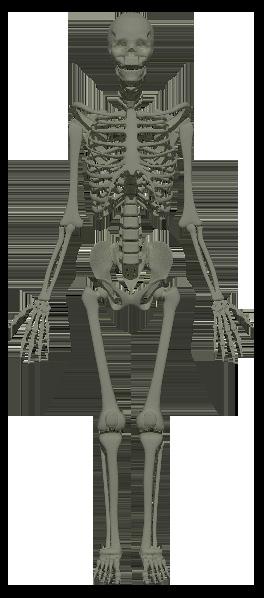
Orianna Xu discusses her opinions on the RAMM’s new exhibition
UP the pink-walled grand staircase of the Royal Albert Memorial Museum (RAMM), down the hall, and to the left of posters of wealthy men and their cabinets of wonder, resides the museum’s new temporary exhibit, A Picture of Health: Exeter’s Medical History. The ambitious exhibit aims to not only examine health and well-being in Exeter from as early as the 18th Century but also to draw parallels to the COVID-19 pandemic. A few steps in, for instance, hangs a somber portrait of Dr. Thomas Glass, a physician who advocated for smallpox variolation in the 1700s, across from a colorful, paint-splattered mural depicting a masked NHS worker in the Rosie the Riveter pose.
With bright labels that recall hospital signage, the exhibit is organized into seven categories: Disease, Remedies/Treatments, Life Cycles, Medical Buildings, Physicians/ Surgeons/Apothecaries, Nurses, and Medicine Today. These sections are well done, covering considerable ground within a modest gallery space. Unsurprisingly, infectious diseases dominate the Disease section, with smallpox and cholera history in conversation with COVID; a satirical cartoon from 1802 mocking smallpox antivaxxers sits in the same case as a face mask
from just last year, prompting reflections on how times change and trends cycle.
In the Remedies/Treatments section, medicine cabinet-like displays will satisfy the more morbidly curious with poison bottles, quack cures, and a pot that once contained toothpaste now known to cause cancer. Life Cycles, subdivided into Birth and Death, showcases a striking maternity mourning dress with hauntingly beautiful mourning jewelry and birthing and feeding apparatuses. You have to be warned, though, that an articulated human arm is on view beside the tale of the illicit corpse trade that enabled medical students to learn anatomy in the 1800s.
Image: Wiki Commons
Under Medical Buildings, a Map of Medical Exeter pinpoints the hospitals and asylums that have served Exeter along with a few of their remnants, including a plaque from 1899 commemorating the royal visit that put the “Royal” in Royal Devon and Exeter Hospital (RD&E). Physicians/Surgeons/ Apothecaries informs museumgoers
of the differing roles and ranks of these practitioners beside miscellaneous medical equipment. The text details the exclusion of women from these professions, while nearby, the Nurses section traces the shifting perceptions of nursing. Healthcare Today celebrates the NHS and the Exeter hip, a hip replacement stem designed 50 years ago that remains the gold standard, before the exhibit concludes with the present-day landscape of medical research and education in Exeter. Technology is most notably employed here, with a video compilation of NHS employee interviews. Watch until the end for their, quite frankly, genius improvement ideas. In the Interaction Zone, visitors can assemble a life-size skeleton and organ systems like medical students and “note your thoughts” on paper for display. Hand sanitizer titled “Surgical spirit” is located beside these interactive elements, humorously straddling the line between display and necessity, past and present. The inspiration for this exhibit was
Post-book blues: how to beat it
an acquisition from the RD&E of 18th century portraits, which can be found throughout; while the text juxtaposes these portraits of physicians and founders with the presentday diversity of the NHS and, more broadly, addresses the exploitation of vulnerable groups in the name of medicine, museumgoers may skim or skip the accompanying text. Perhaps images and descriptions of NHS employees could have been paired with their 18th century counterparts to further combat the lack of diversity visually. Besides this humble suggestion, my only other complaints are the somewhat awkward splicing of Medicine Today around Nurses and that after the thought-provoking, Century-spanning curation of the Disease section, more modern objects were missed in the middle sections.
Full of fascinating objects and art, A Picture of Health tells lesser-known tales of Exeter’s medical history that surround us still, exceeding education and entertainment and accomplishing engagement. Visitors of all interests are sure to walk away with food for thought, fun facts, and new photos in their phone galleries.
A Picture of Health: Exeter’s Medical History is on until 22nd January 2023.
Grace Dudley explores how to get over a really, really good book
WITHOUT a doubt, the worst thing about good books is finishing them. There’s a perpetual sense of sadness and generally not knowing what to do next. This feeling is certainly exacerbated when the book doesn’t have a satisfactory ending or the themes are generally sad.
time the year 1984 had arrived. Throughout the book, we are tied to the protagonist, Winston, who struggles to fit in with the authoritarian society he has been placed in, navigating sex, love and depression while being scrutinised by ‘Big Brother’. It hits a nerve, especially as the ending is painfully realistic.
because it was anti-capitalist. Interestingly, both of these allegations are wrong.
immerse yourself in other genres of literature.
For example, you could try soppy chick-lits or crime thrillers if you’ve just read a particularly sad book.
The book I believe best sums up this feeling is 1984 written by George Orwell in 1948. The book offers a raw insight into what life would be like socio-politically by the


Often, we can get caught up in the need for a cathartic happy-ever-after but the books in which we are given a heartbreakingly authentic ending can leave us feeling sad for weeks. To combat this surge of emotion, I took to doing research into the book itself, especially the context. During my search, I discovered that 1984 was banned in the USSR and America, the former because it was allegedly anti-communist and the latter
Doing this research helped me realise that the book was never meant to make you sad, it was meant to make you hungry for revolution against authoritarian power. This allowed me to stop feeling sad for the doomed love story and instead, look deeper into the significance of the rest of the storyline. Usually during mourning periods after reading books, it’s useful to branch out from the theme that the book presents and
Also, it’s important to note that when you feel sad after reading a book, the author has succeeded in their literary task! Books would not make you feel sad if they weren’t meant to and often the author wants us to sit with the feeling for a while; it’s a strangely addictive feeling and this can be reassuring, especially if you feel isolated with it. My final advice would be to speak to others who have read the book and can relate to what you’re feeling — it will make you feel better and that you’re not alone with your emotions, something we could all do with being reminded of from time to time.
Author of the week: Hélène Cixous
ICANNOT begin to tell you how much I love Helene Cixous, and I won’t even try to. Her writing seems to be a somewhat heavenly synthesis between the little scraps of my personality, so called, that I could never quite tie together correctly. The polemical investigations into the history of philosophy and literature, her penetrating, versatile style, how she paves the way for a new kind of feminist interpretation, literally how cool she is. Yet, I shall stop, this will soon become
just a whimsical and substance-less flurry of adjectives to revere the great French philosopher. Instead, let’s try and unpack some of her ideas, briefly. She proposed, in her The Laugh of the Medusa, what she calls L’esciture Feminine, where she seeks to establish a genre which deviates from the traditional ‘masculine’ forms of writing. Essentially, one which deviates from the symbolic order of maleness signified in society by the phallus. She proposes that we change the perspective on history by re-

interpreting texts and language from a female perspective, such as including letter writing, and cyclical, stream of consciousness writing which signifies the ‘femininity’ of literature, and by extension, history. I could write for many pages on this, and have done so, including her work in most essays I write which she has any relevance, yet, alas, I must simply settle for a few words to broadcast her work to more people, through this small section in a newspaper.
Joshua Smith, Arts and Lit Editor
THERE’S A PERPETUAL SENSE OF SADNESS AND GENERALLY NOT KNOWING WHAT TO DO NEXT
Image: Flickr
OFTEN WE CAN GET CAUGHT UP IN THE NEED FOR A CARTHARTIC HAPPYEVER-AFTER
The Uprising on Sunday
Annabelle Law writes a short story on a revolution in a care home
IT all started when Janet refused to take her medicine, she sneered at the spoon with the red sugary syrup. Then George decided that instead of being rolled around the garden in his wheelchair, he would throw himself on the ground and army crawl away, his pyjamas soaked with mud. Margaret decided her tea would be better served spilled out on the floor, William didn’t want to get dressed, Patricia spat out her teeth. The atmosphere in the care home bubbled until Joyce finally threw her éclair in the face of one of the nurses and Harold in response yelled “Vive la Resistance!”, throwing his glass of water on the floor in a triumphant manner. From there on out the nurses were chased from the home screaming, avoiding the naked wrinkly bodies swinging their arms
out in a childish joy. Food from the pantry was ransacked and used as ammo. Bedsheets were tied together in an effort to make a slingshot, which stoma bags were fired from. Hidden alcohol the nurses put on high shelves were discovered and poured around. Whiskey glasses clinked to the success of their coup d’état, they laughed, linked arms, and those whose legs still worked danced in glee. Alfred, the stronger of those who took residence at the home, put one victorious leg on the table and cheered “To us!”, which was met with a round of applause from the knitting club, from the boys in their wheelchairs and the girls with their floral teacups. Everyone was pleased, everyone felt liberation. Outside, the nurses were plotting in the care home garden, they gathered in a
circle and drew a dirt map in the mud with sticks. Their white uniforms were stained with cream cakes and dirt. The head nurse Mildred led them, as they confidently marched from the garden back to the home. However, they underestimated the residents, who had laid traps for the nurses on their inevitable return. Alfred had given his orders — to piss on the wooden floors, to set up glass medicine bottles across doorways and to use electric blanket cords as rope. When Mildred with her set of master keys burst in through the front door, she immediately slipped in her ferocity in urine and was assaulted with an onslaught of glass bottles from above her. This knocked Mildred unconscious, blood trickled from the corner of her forehead which matted the hair of her bun together. At the sight of their
fallen leader, the other nurses scattered from the home frightened. There was a roar of cheers as Mildred was tied with the electric blanket cords and placed in the cleaning cupboard. Laundry was placed in her mouth in case she would wake up. They had done it. The care home became their castle, the impenetrable fort from a child’s imagination, heavily fought for with losses on both sides (Eileen’s favourite China plates were broken). Alfred was voted as King, seated in the best armchair the home had to offer. Democracy, equality and freedom had been established. The dictatorship of Mildred and her goons crumbled at a new era for the home, an era that lasted until George needed his painkillers again, Harold had lost his glasses and Joyce started to get hungry.
Hark’s, alas’, and woes; the Romantics and their sorrows
Georgia Dudley explore how Romantic poetry reflected its time
WITH all poetry, like art, is a window into the hour, day and year that it was created.
Literature allows writers to reflect on life, feelings and the past. John Keats (17951821) and Percy Shelley (1792-1822) illustrate this concept explicitly in their poetry. The Romantic period spanned from the late Eighteenth through to most of the Nineteenth Century. A cultural movement born in response to the scientific, rational Enlightenment which emerged beside the Industrial Revolution. Romanticism was formed from art, music and literature that focused on the individual human experience, shown by the use of the poetic ‘I.’ Keats and Shelley both expressed overwhelming feelings of sorrow in their work. Poetry can
therefore reflect ‘its time’ from both the style and subject matter. Shelley described poets as able to “sound the depths of human nature with a comprehensive and allpenetrating spirit…” recorded in his (1821) ‘A Defence of Poetry’.
Both poets experienced grief in their youth, the trauma of which can be felt from their collections. Keats’ lost his parents and brother whilst Shelley witnessed the death of his infantile child and the suicide of his first wife. In Shelley’s ‘To a Skylark’ he seeks answers to human suffering and contemplates how “Our sweetest songs are those that tell of the saddest thought.”
Keats ponders on the uncertainty in life within his ‘Ode to a Nightingale.’ Anna Kérchy argued that his “lyrical meditations” on mortality derived from the death of his brother and his own tuberculosis, for which he received the official diagnosis the following year. These two poets were guided by a steadfast belief in expression, Keats believing in ‘negative capability’ a mental state that accepted “uncertainties, mysteries, doubts, without any irritable reaching after faith and reason.” Along with their fellow Romantics Wordsworth, Lord Byron, Blake and Coleridge, Keats

and Shelley captured the uncertainty in the world. S. Forward recorded how the Romantic poets condemned the exploitation of the working classes in the ever changing climate of industrialisation and social mobility. Poetry can serve as a study of a poet’s life and of the social, political and economic climate they lived in.
Keats and Shelley’s poems showcase the freedom that Romanticism presented. These revolutionary values, transformed by their suffering, created writing which challenged existing beliefs and provided a reflection of their lifetimes.
Centuries after its first publication, Romantic poetry remains just as relevant and emotive, reaching people on a personal level just as it did when it was first written.
Masters of the universe, reflections on how to write
Joe Vinton explores the world of writers on writing
HOW would you like your essay served, professor? Can I get you free refills of metaphor with extra helpings of onomatopoeia? Maybe you would prefer a smaller side of referencing or leaner paragraphs perhaps, I have heard these are easier to digest. May I recommend my speciality: verbose ramblings? No... That is unfortunate.
I promise I will not overdo it this time!
I will leave the cooking analogy to one side but I assume, you understand my point.


Everyone has a different taste when it comes to writing. If you are a student of humanities you certainly do not need me to tell you that each academic likes their essays to be written slightly differently and this extends to the world of professional writing. There
are perhaps more guides to writing than there are for anything else. This is because, novelists, poets and playwrights tend to be introspective and often reflect on their work in books. Their erudite musings can be fantastic when we want to learn how to become better writers ourselves but they also can lead us to ask a simple yet complex question. Is there a golden rule to writing or is it completely subjective?
I posed these questions to the “masters of the universe” and tried to find out for myself if there is any rhyme or reason to the writing rulebook. There are two sides to the argument when it comes to writing. On one extreme, we have traditional formalist critics who have positioned writing, purely as an act of creating an artefact. In simpler terms, their view is that structure is key and that the object (be it a poem, novel or article) needs to be rigidly designed within the boundaries of the form. Maybe think back to your pedantic
secondary school English teacher who always insisted on accurate grammar. On the other polarity, we have writers who believe that there are no rules whatsoever. Anyone who has tried to wade through the prose of James Joyce’s “Finnegan’s Wake” might have some clue as to how the aesthetic of lawless writing reads. As with most things, a flexible view balancing experimentation and respect for form is perhaps best suited for when we view the act of writing. As Robert Mckee notes “it is better to work with principles, not formulas.”
Milan Kundera penned an intriguing memoir about writing titled “The Art of the Novel.” His thesis says that “knowledge is the novel’s only morality.” He goes on to suggest that form (e.g the novel) “cannot break the limits of its own possibilities.” Thus, this suggests that the potentiality of writing is only bound within the creative powers and limits of the writer. This seems to me to be an encouraging view for anyone who wants to write. Writing is what you
make it and as long as you are following your curiosity you are going down the right path.
Gene Fowler once said that writing is easy, “just a matter of staring at a blank page until your forehead bleeds.” This is melodramatic but in some ways, he is probably true. With practice will come the answers you seek and your writing will doubtlessly improve the more you toil at your desk. Ultimately, my exploration into writing led me to several vague answers:
— Write with integrity.
— Good writing comes from wide reading.
— There are no limits to form, only the ones you make yourself.
This is a personal view which suggests that writing is a subjective process. Or maybe these are indeed the key rules but, I will leave you to decide that for yourself.
exhibit | arts + lit 9 NOV 2022 | 17 EDITORS: Ella Minty & Joshua Smith
Image credit: Free SVG
Image credit: Picryl

TECH

LIFESTYLE ARTS + LIT
MUSIC STUDY BREAK SCREEN
MUSIC
'Coming of Age' with Blondes
YOU will have heard a song by Blondes, even if you don’t realise it. Once ‘Com ing of Age’ starts to play, the guitar riff and swelling nostalgic sense is unmistakable.
Soon though, you’ll realise it's them. Blondes are steadily making their way into the industry, which was crystal clear from chat ting with Alex Davison (guitarist, songwriter).
Recently the band did their first European show in the shadow of Berlin’s Olympia Stazia, as well as a run of nine dates around the UK, by far their longest. The band's excitement for these shows is clear, with Alex detailing how restless energy often gets to them during their travels, with them all eager to get out and perform.
Flurries of excitement are something the group have experienced before, with ‘Com ing of Age’ blowing up meteorically on TikTok during the Coronavirus lockdown (as of today, the sound has 216.8k videos under it). Alex told me how "the immediate aftermath was a really confusing time because there was both completely unprecedented excitement and also a lot of anticipation because of the nature of what virality is — you don’t get the career handed to you, you just get the door opened."
FLURRIES OF EXCITEMENT ARE SOMETHING THE GROUP HAVE EXPERIENCED BEFORE
He admits that they felt that they "might have been handed a once in a lifetime oppor tunity", but that "they had to make all the right choices." It was clear that the boys realised the gravity of what they were sitting on at that mo ment: what a "lot of artists in [their] position would kill for." Their level headed natures seem
to have really helped them along the way and off the back of all this, they ended up signing a re cord deal with C3 Records, who took every step to help the band "establish themselves as pro fessional musicians and not just a TikTok sound."

This whirlwind was intensified by the fact that the band all had Coronavirus at the time and were self isolating together. Alex laughed about the fact that there was "a lot of shouting and loud music…and kind of celebrating but not really celebrating because we didn’t really know what was happening." I asked whether he felt that the fact all of them being forced to gether advanced their creative process as well as their decision making, and it was very much a firm yes. Alex said once the flurry of logistics passed, they "started writing a hell of a lot more", with not much that was created ever seeing the light of day as most of them were "very imma ture in terms of the skill of writing and composi tion." However Alex is not negative about this at all, he had a really positive and evolved sense of the fact that "whether or not those ideas ever became properly recorded songs doesn’t really matter, because we took bits and pieces and inspiration from everything that we’ve learnt."
To move to the present, sonically the band is solid with firmly recognisable attributes. As is always the lingering question, I asked Alex if an album was within their sights or wheth er there were more EP’s on the way for the group. It’s exciting times for the boys, as "the next project will almost certainly be another EP. It’s almost ready basically", and addition ally hopefully an album is "very close…touch wood." From this sprung a chat that leapt fur ther into the future, about who they would love to open for, with Alex reeling off bands it is clear the group take great inspiration from
like The 1975, Blossoms and Arctic Monkeys. He is fantastically starstruck by the sense that they’re in the position to wonder if they could legitimately support these bands, and says its "completely surreal and usually they’re way too big for us, but it’s the kind of thing now that we’re in a position to start thinking about."
It seems like something that’s always been in the back of the boys minds, with Alex hav ing been in bands on and off for around nine years now. There’s tapes of Stroud singing his heart out from back in the day ('Love Ma chine', as the rumour has it), and was in bands with his dad too. The other boys are the same,
for example Tom was raised on punk, giving the group a really eclectic mix of influences.
When the group all banded together at uni versity, Alex says that the "general idea was that if we gave it time, who really knows. You hear the lyric in 'Coming of Age', that was the whole point, it was like something could happen. We were kind of signing our own self-fulfilling prophecy".


They’ve all come a long way from their early days at Nottingham. Alex and I chat ted about growing up, and whether he felt they were out of that weird liminal space where you’re not quite an ‘adult’ yet. He said that they "still consider themselves to ex ist in that kind of space, because it would be naive to consider that you’ve come out the other end, it’s always a continuing process… but we’re at the back end of it definitely."
Interestingly, their TikTok virality seemed to be interconnected with this for Alex. He said the amount they were confronted with and had to learn, "not just as individuals but as a whole unit" forced them to mature quick ly, "because you have to learn how to man age not just yourself and your emotions… but also your relationships with each other."
Alex elaborated that because of this, they had to "learn to put labels on things that are more indescribable and how they affect you. Things that were more con fusing and threatened to swallow you up when you were 18, they seem a lot more easily identifiable and manageable."
'Coming of Age' seems to act like a sort of time capsule for the boys, as Alex feels it was written from this younger per spective. I’ll very much be looking out for their second EP, which Alex describes as "what they think about it all now."
///////////////////////////////////////////////////////////////////////////////////////////////////////////////////////////////////////////////////////////////////////////////////////////
Thalia Sampayo sits down with Blondes guitarist and songwriter Alex Davison
Image: Rachel Kiki @rachelkeeks
Images: Nathan Cole
Album review: Midnights
Livvy Mason-Myhill, Deputy Editor, reviews Taylor Swift's new

TAYLOR Swift’s Midnights , her tenth stu dio album, which was released on 21st October has become a record-break ing album and for good reason. It broke 73 records including being the first artist in his tory to claim all top ten entries on the Bill board Hot 100 in a single week as well as her album being number one in 14 countries. Her album comprises of 13 songs including 7 bonus tracks that were later released as part of her 3am Edition of her album. The album is a collection of songs that Swift described as being made during the midnight hours.
The album begins with ‘Lavender Haze’ which introduces a synth-pop feel to the album. It is clear from the start that this al bum no longer replicates the same folk pop feel as her previous albums Folklore or Ev ermore . ‘Lavender Haze’ was described by Swift to be “a common phrase used in the fifties where they would just describe being in love […] and I thought that was really beautiful”. She also relates the song to her current relationship with actor Joe Alwyn who she has been dating for six years. The song is reminiscent to her 2019 album Lover giving a similar sound to ‘I Think He Knows’.
Her most popular song from her al bum would be the third track, ‘Anti-Hero’ which also had a music video paired with it. Swift described the song to be “one of my favourite songs I’ve ever written. I re ally don’t think I’ve delved this far into my insecurities in this detail before”. The song contains the catchy lyrics “It’s me. Hi! I’m the problem, it’s me” which instantly became
a trend on TikTok. The more personal feel of the song is not only relatable, but also helps listeners to be on a more personal connection with Swift, understanding her insecurities whilst also relating to them. The song has a similar effect to her other songs ‘mirrorball’ from her Folklore album and ‘The Archer’ from her Lover album. The music video for ‘Bejeweled’ also was a hit with fans. It followed a Cinderella-style story of Swift acting as Cinderella who be comes bejewelled and can “make the whole place shimmer”. The music video also fea tures celebrities such as Oscar award winner
Laura Dern playing the evil stepmother and the Haim sisters playing the evil stepsisters. Alongside this, the music video according to Swift had many Easter eggs, something that Swift is famous for using. Swifties have theorised that many of the Easter eggs are hinting towards Swift’s potential re-recording of her 2010 album Speak Now Her song with Lana Del Rey, ‘Snow on the Beach’, is the only song on the album featur ing another artist. This song was one of the most anticipated songs of the album with many fans excited by the news after the fea ture reveal in her last ‘Midnights Mayhem
album
with Me’ video. Yet, some fans took to social media after the release of the song saying that they could barely hear Lana Del Rey and that they wished she had at least been given a verse in the song, rather than just backing vocals. Despite this, the song perfectly cap tures the essence of Del Rey, and the soft ness of the song makes it vocally beautiful.
My personal favourite of her songs on the album currently is ‘Labyrinth’. It de scribes the feelings of falling in love along side describing how it can be difficult for people to “bounce back”. The song feels raw and encapsulates the fear of falling in love too quickly. My other favourite song on the album so far would have to be ‘You’re on Your Own Kid’, with its absolutely addictive bridge. The song perfectly describes the feeling of growing older and that as you age, you must depend on yourself and face things alone. Many fans believe the song represents Swift’s journey through the years and throughout her different album eras. Ad ditionally, I can’t forget to mention her iconic song ‘Karma’ which has an energetic Reputa tion vibe to it that I cannot stop listening to. Overall, I adore the album and com pletely understand why it is such a hit. To me, it is a mix between her previous album 1989 and Reputation with a hint of Lover . I know fellow swifties will understand that this album is a true masterpiece, and it re turns Swift to her pop throne. I cannot wait to see what comes next from Taylor Swift and am especially anticipating her upcom ing tour which is currently in the works.
AN evocative music video is arguably just as significant to an artist's vision as their music. The cinematic art form can provide a closer reflection on the meaning of the lyrics — or sometimes tell an altogether different story. Each year the MTV music awards produce a rundown of the best music videos globally — with 2022 drawing to a close, I’d like to review my top three music videos from the year we emerged from the pandemic.

Harry Styles — 'As it Was': The striking red and blue outfits against the neutral set of the 'As It Was' music video embody the addictive synth-pop vibe of this refreshing
summer single. The song is about embracing change — and the music video physically em bodies the emotional ebbs and flows of the romantic relationship. Whilst Harry and his part ner try desperately to touch one another and see eye to eye, Yoann Bourgeois’s beautifully dynamic choreography atop the spinning set pieces encapsulates the exhaustion of navigat ing a relationship that doesn’t quite work — as well as the melancholy freedom of letting go. The use of the butterfly motif is significant in the video's distillation of the lyrical explora tion of change. Butterflies signify the tempo rality and fleeting beauty embodied not only in Harry’s (very attractive) tattoos, but also in the more subtle props used on set. The met al rod with which a dancer pins Harry down, for example, appears to be an upscaled ver sion of that which one uses to observe and display butterflies. The video is teeming with visual metaphors which serve as a beauti ful cinematic accompaniment to the song.
Taylor Swift — 'Anti-Hero': Whilst the original release of Taylor Swift’s Anti-Hero video received backlash for a scene in which she steps on a scale that reads the word ‘Fat’, the revised version has been more widely accepted as an explora tion of the singer’s self-loathing dark side. In true Taylor fashion, the video is littered with Easter eggs and references. From her smashing
of the Speak Now guitar to the glitter ink that ooz es from her eggs and skin — every scene is burst ing with layers of cultural and personal meaning. The Koi Fish guitar which many fans recognised from Swift's Speak Now era is destroyed by Tay lor's evil twin whilst the ‘real’ Taylor plays that same guitar. This dualistic imagery could be a nod towards an upcoming recording of the album following the 2021 re-release of Red On a more personal level, the oozing glitter ink signifies what Swift famously referred to in an acceptance speech as "Glitter Gel Pen lyrics" that are "Frivolous, carefree [and] bouncy". The unapologetic video embodies the glitter gel girl through its outrageous acting and special effects as well as its vulnerable authenticity.

Sam Smith, Kim Petras — 'Unholy': As a loving husband opens the door for his wife and hands her his coat, this heteronormative dis play of farcical chivalry immediately crumbles to the unmistakable intro of 'Unholy'. The next scene sees the husband walk into an auto ‘body shop’, standing as a façade for a queer club cab aret of glittering excess and lustrous pleasure. With background references to Aphrodite as well as the casting of drag queens and adult film stars, the video is the perfect visual accompani ment to the single which signifies the delicious freedom of unrestrained queer expression. Whilst it received some backlash for its anti-re ligious sentiment and its stereotyping of queer
culture, the 'Unholy' music video is a distilla tion of the liberating message of the song. It is refreshing to see queer people engaging in the lustrous sexuality of the music video form that heterosexual artists have enjoyed free ly for years. The glistening cinematography is the perfect accompaniment to the command ing track and is a sure favorite amongst fans.
With two more months of the year to go, and with music from Stomzy and Louis Tom linson due to drop in November, I look for ward to seeing what musical-cinematic mas terpieces our artists have in stock for us next.
exhibit | music 9 NOV 2022 | 21
EDITORS: Megan Ballantyne, Joshua Hughes and Livvy Mason-Myhill
on the screen Manon Martini delves into her top three music videos of 2022 Image: Lovclyhes, Wikimedia Commons Image: pitpony.photography, Wikimedia Commons Image: Wikimedia Commons
Music
screen
BFI festival
Amelia Heasley, XTV’s Head of Creative, discusses her experience at London’s BFI Festival
THE BFI festival. Where to begin? For those of you who do not know, the film festival is held every year in London and premieres many films set to be released in the upcoming year, with galas at tended by the talented artists and filmmakers.

XTV society annually takes a handful of keen members to the festival and this year’s group was almost entirely comprised of firsttime goers. After a rollercoaster of surprises, the incredible weekend came to an end and I was finally able to find a minute to sit and put the experience to paper; here is what we learnt.
The first surprise: Florence Pugh. Before our eyes, the star strolled — no, glided out of her car and floated over the red carpet in her stun
ning chiffon, flowy, coral coloured dress, steal ing the breath out of every onlooker. Ethereal. We had learnt that we could and would see many famous artists this weekend from the balcony above the red carpet — easily ac cessible to any member of the public. This was a game-changing moment for our group. We put our heads together and decided we would no longer wander aimlessly, but rather do our research and see every celebrity in at tendance. By the next day, between us, we had seen: Timothée Chalamet, Jennifer Law rence, Bill Nighy, Aimee Lou Wood, Taylor Rus sell, Noah Baumbach, Luca Guadagnino and Alejandro Gonzalez Iñárritu — to name a few.
To see the people who make the films, so close, in person, is life af firming to a person whose DNA and blood is encoded with films. It is a fantastic experience, to see these people, who had, before this moment, been dis tant, unreal figures found only in videos online.
We saw the film White Noise, starring Adam Driver and Greta Gerwig, directed by Noah Baum bach. The film puts a mi croscope over the allure of awkward human relation
ships and conflict between family members against the nonsensical backdrop of a dooms day event — with emphasis on the doom lasting a singular day, as it is cleared up ab surdly quickly. A charming, chaotic comedy.
Attending my first screen talk with Noah Baumbach was life changing. For one, I learnt how to pronounce his name! Seeing the man who created the film we’d seen just hours be fore sit merely meters away was surreal. He dis cussed his works, his processes for writing and rehearsals, from his debut film, to this most re cent release. It was touching to hear him explore the emotions he had attached to all his works.
Any way you turn you find like-minded people and can passionately discuss your fa vourite films and works with these strangers who respond with equal ardour. The thread connecting you all; what brought you here, is tangible. You can feel the love for film in every gaze mesmerised by the red carpet and in every silent, anticipating body fill ing every seat in the cinema as the lights dim.
The highlight of the trip for me, alongside breathing the same air as Timmy, was seeing Ale jandro Gonzalez Iñárritu. For the gala premiere of Bardo, False Chronicle of a Handful of Truths (and a mouthful of a title) we managed to secure spots standing at the front of the barriers on the red carpet so when he arrived we stood a few feet away from the genius, talented filmmaker.
On the stage in front of the big screen, Iñár
ritu introduced his film, advising us to simply watch it and not think. He suggested we do not try to work anything out; the way nothing makes sense in dreams. Just watch and experience.
It took only a few minutes of the film to be grateful for the words of advice. The film takes on a dream-like style. As much as I would like to summarise the plot for you, the best of us could not. This surreal, senseless, cinematographically stunning, dream-like piece is a sheer pleasure to watch due to the combined mastery of director, Iñárritu, and cinematographer, Darius Khondji.
The BFI festival is the gift that kept on giv ing, for, the next day I was able to attend the screen talk with the masterful director, Iñár ritu. This was my favourite event because we got to meet the hilarious, charming, master storyteller, as he intelligently spoke of his work. He told us of his directing methods and ideas and nostalgically recalled funny conversations with actors on set. Incredible.
This festival is, surprisingly, accessible to everyone. Anyone can buy tickets for screen talks, premieres and galas online. The red carpet can be seen from the balconies around Royal Festival Hall. For anyone who needs to reignite the spark, or fan the flame, or get in touch with the magic of cinema, go to the festival. Ab sorb the atmosphere of a thousand film-lovers around you and know you are in the right place.
Calling all cinephiles and cinephiles-to-be, come from far and wide, this is something to see.
Horror in Harry Potter

Jess Cadogan explores the horror genre within children’s films
WITH the spooky season in full swing, let’s talk about what was probably most of our first ‘horror’ experiences: the Harry Potter films — specifically The Prisoner of Azka ban. As some of the most well-loved films world wide it’s no surprise that audiences keep coming back to watch them again and again, and, as a result, we may find ourselves becoming desen sitised to the scarier moments that would have kept us awake when we were younger. However, the Harry Potter films are — first and foremost — kids films. It can definitely be argued that the films matured at the same rate as their primary audience and main cast, but the third installa tion still upholds its title as a stand-out spook.

with their ghostly appearance and skeletal fea tures. A different director to the first two films could play a part in explaining the difference in tone, but even then elements of horror were present in the preceding installations; in The Philosopher’s Stone when Quirrell crumbles agonisingly into sand, or in The Chamber of Se crets when blood writing is found on the walls.
From the terrifying performance of the (initially) menacing Sirius Black to the wonder fully frightening design of the dementors, The Prisoner of Azkaban indicated a shift in the tone of the films from the warmth of the Gryffindor common room to the icy cold of a dementor’s kiss. I always found the action at the Shrieking Shack and Professor Lupin’s eventual change into a werewolf terrifying, but it was always the dementors that were the most disturbing
But is a film still appropriate for children when it becomes so un settling? Author Neil Gaiman said while speaking to an audience about why he writes horror for children: “the point of telling scary stories is inoculation, that you get to take and deal with…the things that scare and hurt and dam age us, and you get to take it in fictional form”. Gaiman, of course, is the author of books such as Coraline. Its film adapta tion haunts most children (and adults!) as it is utterly terrifying. But Gaiman also spoke about how it could be helpful for those in simi larly abusive situations, as seeing characters get through the horrors in life and still come out the other side (with possibly only mild trauma) can encourage and inspire real people.
Although all of the Harry Potter films contain
elements of horror, they still manage to find a balance with the light which is how they retain themselves as a teaching moment. The constant humour of Ron throughout the films, the consist ent themes of love, friendship, and family, and even in the final film the understated aftermath of the war inspires a hopeful feeling in the viewer. Although some of the scares can’t be avoided — like those film four hairstyles — good, more often than not, prevails over evil and even though this may be an idealistic view of the world, it may just help a couple of kids. But have children’s films and TV shows always been scary? I remember growing up watching shows like Dr Who and Merlin and being absolutely terrified, but now I watch them with nostalgic fondness. Other shows like Scoo by Doo and films such as Casper also contain elements of horror but they counteract this with comedy, making the horror more palatable — this easily becomes another teaching moment. We shouldn’t just dis regard the horror of these however, as there is a crucial lesson in beginning to comprehend fear that many of us will have learnt through the visual media we were exposed to when we were young. A wise dosage of horror in enter
tainment for children is effective espe cially when we can learn something from it but come on, Coraline is terrifying.

WE MAY FIND OURSELVES BECOMING DESENSITISED TO THE SCARIER MOMENTS
Image: Amelia Heasley
Image: Brickset, Flickr
Image: Dave Catchpole, Flickr
EDITOR:
Horror movie villains
Screen writers reveal their favourite horror villains and why
The Scarlet Witch
NOW that the Halloween season is upon us, the best horror movie villain is a topic up for debate. Admittedly, I am a horror movie hater, whether it’s the gore I can’t stomach or the anxiety inducing tension, horror films have never really been my cup of tea. However, I can still appreci ate horror villains for the crippling terror they bring, so my favourite villain as of late is the Scarlet Witch played by Elizabeth Olsen. I know what you are thinking, “ Doctor Strange in the Multiverse of Madness isn’t a horror film!”. I beg to differ. Although it’s a superhero film, Marvel definitely delves into the horrific side of the genre, with Scarlet Witch snap ping necks, exploding heads and ripping apart other supercharged beings with ease.
Although maybe not detailed, this film is definitely gore-filled which made my first watch of the film in 4D all the more thrill ing. The reason why I think the Scarlet Witch holds her own against other horror villains is because of how truly delusional she is, she believes her own fantasies and desires as reality, and there is no end to her mur derous tendencies to get what she wants.
The Scarlet Witch is not just a violent su perpowered entity that takes pleasure in her own destruction, she is also a complex char acter that is flawed and on a human level, someone we can sympathise with yet also be
terrified of. She is easily the most powerful and horrific villain of the Marvel franchise because there is no length she won’t go to, she is able to change reality at her will which allows for an unlimited number of creatively gruesome murders. The maternal moti vations for her actions are both heart-breaking and fail to distance her from the audience as simply a villain who kills be cause she enjoys it a shallow motivation I find in the major ity of horror vil lains. Overall, from one nonhorror-lover to another, the Scarlet Witch is a character that can induce deep ten sion and gory terror whilst keeping the com plexity of Wanda Maximoff.
The Facility
AS the spooky season nears, there is surely no topic more heatedly debated in the TP smoking area than this — what is the best horror movie villain? We have the basics of course: Hannibal Lector, JIGSAW, the mum from The Bee Movie . As uni versity students, however, our tastes are certainly more so phisticated and so that’s why I’ve actually set tled on ‘The Facility’, the people behind the organisation of ritual sacrifice in the harrowing comedy — sat ire — The Cabin in the Woods Put simply, the role of The Fa cility is to appease the ‘Ancient Ones’ through the annual sacrifice of a group of teens. Divided into count less departments, from Zool ogy who research the monsters used in the rituals, to Finance who regulate costs, the Facility reeks of corporate fanciness. And we love it. Those smooth, carpeted corridors, soft lighted and fitted with twix bar produc
Frozen Planet II review
WITH Sir David Attenborough’s nature documentary series Frozen Planet II recently coming to an end, the show leaves viewers captivated by the beauty and venom of nature and its power to survive its own intensity. Attenborough’s goal to encap sulate the fascinating essence of nature, in par ticular the frozen areas, whilst also educating an abundance of viewers on the significance of nature, and its peril in climate change, is one of things which makes his nature docu mentaries so popular. From showing the jeop ardy polar bears face on melting ice caps, to presenting a sweet seal family playing in snow, Frozen Planet II is a prime example of meaning ful, and therefore successful, British television.
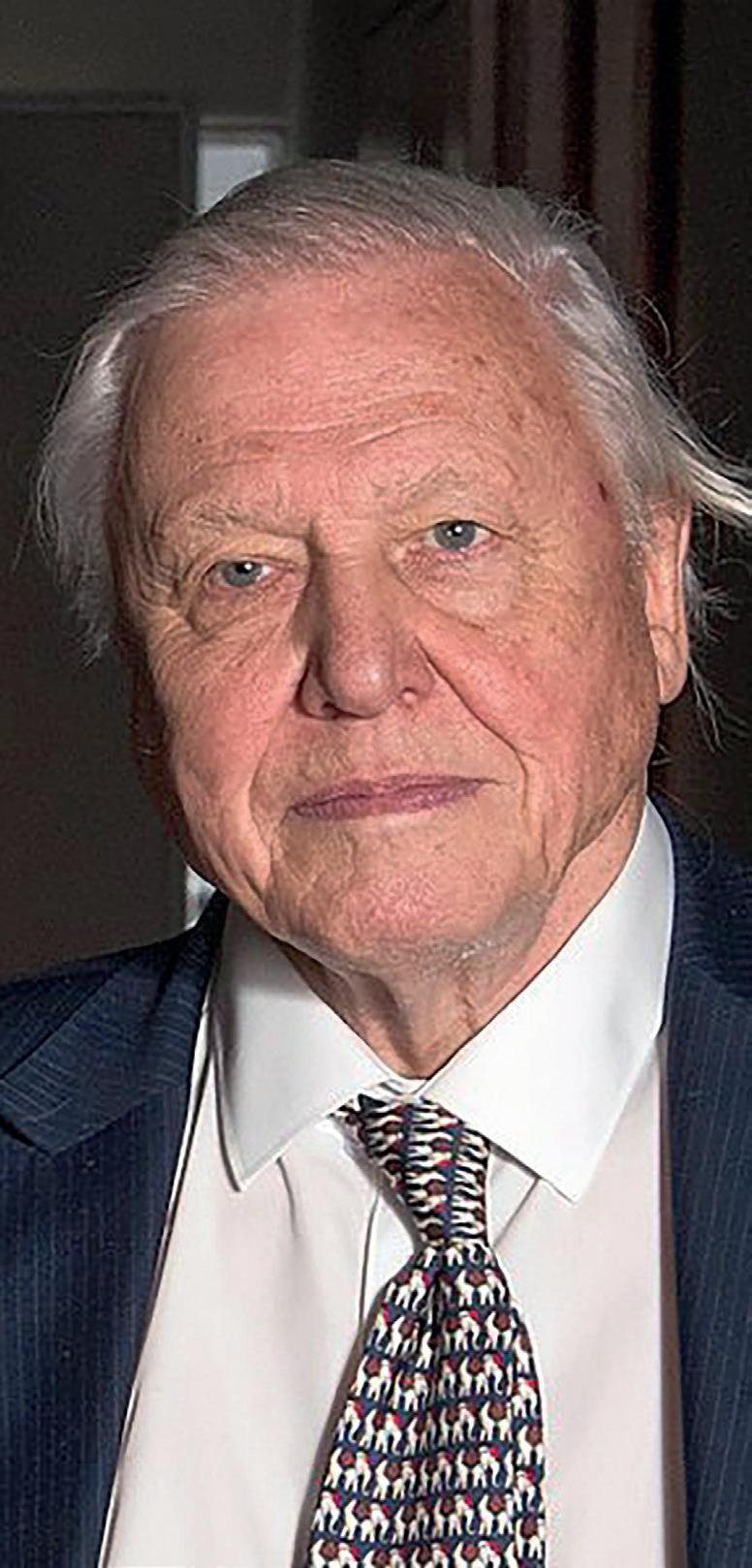



From a young age, I’ve always been inter ested in the power of nature documentaries and their ability to educate, as well as enter tain. I remember growing up on the words of
explorers, such as Steve Backshall and Sir Da vid Attenborough — watching them discover the undiscoverable and explain it all so clearly that anyone could understand it. Their ethe real demonstrations of the real-world, com bined with their commentaries, interested me and the fact that nature documentaries are still so prevalent today indicates that the love of these docs will continue to grow for generations to come. A true pleasure of At tenborough’s series, including Frozen Planet II and his other works, is their accessibility for all audiences; no matter your age, back ground or education, his documentaries of fer a platform for education and a widening of knowledge for all. He makes the inacces sible treasures of the natural world acces sible for everyone, for example the segment on the Lapland Queen Bee. Before watching this, I had no idea that bees would survive in such freezing conditions and the way the Queen prepares her colony for the spring.
Whether an episode is about the colony of penguins or the Thwaites Ice Shelf, At tenborough also informs his viewers about the impending threat of climate change. By educating on this easily attainable plat form, more people are aware of the dangers of human emission and what they can do to help prevent the process of climate change. Moreover, Attenborough’s display of beauti ful nature and then the harsh reality it faces creates a massive shock for viewers. The con trast between seeing an animal family play ing in the snow and then finding out that a young one has been lost because of the con
ditions we are responsible for creates an up set for viewers. Although many of us believe we aren’t directly affecting climate change because we’re not part of big oil companies, we still hold a strong impact on the wellbe ing of nature and its ability to survive the environment we are responsible for gradu ally destroying. Even if our changes are as seemingly small as recycling and reducing our plastic waste, by taking a form of action, we can help prevent the rise of climate change.
ing vending machines, offer a comfortingly familiar scene — it’s the opening of virtually every Suits episode. The ‘sweet rapport’ of the tech geeks Steve Hadley and Richard Sitter son, our main characters, rings playful and simple — Steve and his wife are trying for a baby, she’s already baby proofed the whole house and now it takes him 20 minutes to get a bloody beer. They also bet on which beast the teens will unknowingly confer their fate too — Steve’s put money on Aquaman for a second year in a row because he will admit, he’s a bit of a fangirl for aqua gore. And that is what chills us to the bone about The Facility. They are terrifying not be cause of what they do to the teens, but be cause of what they do to us. With their Iagolike humour they make us giggle at Richard’s terrible puns (What do you call people from Stockholm? Stockholders), all while on the screen behind them Jules, a sacrifice, gets her head sliced off with a saithe by a zombie. What matters though is that Steve lost his bet again. Richard comforts him, maybe Aquaman will be chosen next year: Third time lucky!
Sophia Mykhaylyuk
I believe part of the appeal of nature doc umentaries also stems from the host. When a new David Attenborough documentary is announced, it’s immediately trending and be comes the most viewed show for that period. He is such an iconic, household figure that just his name evokes a reaction. Additionally, when such a strong presence with a high platform, like his, speaks out about the dilemma of cli mate change and global warming, then peo ple are bound to listen, and it is crucial that we listen. We must change how we live in order to continue and as Sir David Attenborough states in the final episode: ‘we can do it... we must do it... then there will be a future for our planet’.
Annabelle Law
exhibit | screen 9 n OV 2022 | 23
Lisette Reed delves into the final episode of David Attenborough’s nature documentary
POLLYANNA ROBERTS
ATTENBOROUGH’S DISPLAY OF BEAUTIFUL NATURE AND THEN THE HARSH REALITY IT FACES CREATES A MASSIVE SHOCK FOR VIEWERS
Image: Sheila Sund, flickr
Image: John Cairns. Wikimedia Commons
Image:
NASA Goddard Space Flight Center, flickr
TECH
Microcontrollers: The greatest electronic product ever created?


George Seymour explains why he thinks microcontrollers are here to stay
MICROCONTROLLERS are great. They are in so many of the consumer goods we use every day. From Microwaves to washing machines to automatic doors these devices are everywhere. But this is just scratch ing the surface of their use, with the above examples not being the most exciting de vices in the world. Before I tell you about the more mind blowing things they are capable of, lets first establish what a microcontroller is. Google says it is “a control device which in corporates a microprocessor” which is not ex actly the clearest definition. So what are they then? They are essentially a tiny computer. It has a CPU (the microprocessor) that allows it to per form math operations and controls other devic es like LED lights and motors through its inputs and outputs ports. Unlike a computer though, they do not have an operating system. This means programs cannot be run on microcon trollers, e.g. you couldn’t make your dishwash er run Microsoft Word. Instead they operate through having code uploaded to them from a computer. The code is written so the microcon troller can perform a certain task (and only that task), for instance take the automatic door. Code is written so when the microcontroller receives a signal from a motion detector it powers a mo tor that opens a door, then after a certain time has passed it powers the motor to close the door. This microcontroller can only perform this task now as that’s the only code on the device.
So what they are is a very simple computer capable of reading inputs and controlling out puts. They complete tasks that are too simple for a whole computer to be dedicated to and too complex to design an electronic circuit for. Now you may be thinking: “this is cool to know I guess but I can’t do anything with microcon trollers and they sound complex.” And this did use to be true as previously they were just a tool for engineers in industry to use to make consumer products. Until an Italian company
“Arduino” released a microcontroller prototyp ing board for the ATmega328P microcontroller in 2010. This alongside a friendly coding in terface the Arduino IDE made it possible for anyone to get into doing their own microcon troller projects. Now 12 years later if you type into google “Arduino projects” you will be hit by barrage of some absolutely incredible pro jects all built by hobbyists in their spare time. The reason for this success is Arduino open source nature. All of the community share
their code and parts lists across the internet with step by step guides on how to copy them.
I honestly think products like this are the future of consumer tech. When I first started playing around with Arduino I had no coding experience and 6 years later I’m currently us ing an Arduino to start my own climbing busi ness. It is so easy to pick up and play with this product, if you are inexperienced there are so many projects you can copy and tweak for your own needs. For example I’m currently making a light up Eevee for my girlfriend and I have found so many similar LED projects it has been a breeze coding it. I literally couldn’t recommend getting into Arduino more as if you’ve ever had an idea for a project from something like turning your staircase into a piano or making a drone it is all possible with Arduino and there is so much fun to be had making your own unique electronic product.
With the way microcontrollers are progress ing I soon think they will start replacing con ventional electronic circuits and certain tasks completed by computers. They are constantly becoming more powerful and more afford able. Raspberry Pi Company released one last year that cost only £4 and can be coded to in one of the most beginner friendly language Py thon. If it keeps progressing like this I don’t see why companies would even bother designing a circuit when they could write a few lines of code to a microcontroller and use that instead.
Musk’s moderation fiasco
Megan Ballantyne, Editor, looks at Elon Musk’s totalist approach to free speech on Twitter
ELON Musk’s recent takeover of Twitter has been fraught with controversy. He has claimed that he plans to fire half of the 7500 strong workforce, and, with his new blue tick mon etisation strategy, has told workers to ‘work day and night,’ under this threat to their job security.
Elon’s takeover is controversial on more than just a workers’ rights standpoint, but it does pro vide us with a clear picture of his authoritarian lead ership style — in his casual threats to workers’ job security and to their leisure time, he seems to be marking his sovereign authority on the company. We can see this in the changes he wants to make to the platform itself too, being pushed through incredibly quickly at the expense of the company’s workers. He has decided to implement a monthly payment system for acquiring a blue tick on twit ter, previously allocated by the company to public figures and celebrities, in a move one manager at Twitter said “opens up another vector of abuse, for which I highly doubt we will be prepared given such a timeline.” With many of those senior staff who have in depth knowledge of the company’s work ings such as its former CEO, Parag Agrawal, fired, the speed of these changes is deeply concerning.
More concerning still, however, is Musk’s total ist approach to freedom of speech on Twitter. He lauds the online platform as the centre of demo cratic progress, never more excessively than when
he claims “Free speech is the bedrock of a function ing democracy,” he said, “and Twitter is the digital town square where matters vital to the future of humanity are debated.” And he has hinted that he would remove lifetime bans on controversial fig ures in order to allow them this freedom of speech and participation in his vision of democracy. This might include include figures such as Donald Trump, who was previously banned from the plat form in 2021 after allegedly inciting violence and spreading misinformation about the results of the 2020 US election. Other figures include Kanye West, just recently temporarily banned from his account for anti-Semitic tweets. And broader moderation strategies could also be under threat under Musk. Twitter earlier this year moved to limit content from official Russian government figures in the wake of its attacks in Ukraine. Musk himself has previously been criticised for pro-Russian rhetoric, suggesting that Ukraine should open peace talks with Russia and allow occupied territory to remain with Putin.
This idea that free speech and democracy is best preserved by limited moderation on on line platforms is never more contradictory when the potential manifestation of this might be to platform an undemocratic dictator who has in vaded a democratic country. Musk sees Twitter as an extension of the world, and the freedom of speech of the individual — but unmoderated
speech and misinformation is especially easy to spread via social media, in comparison to almost any other method of discourse. Not moderating a social media platform like Twitter, might argu ably nearly amount to the intentional spreading of misinformation. And there seems to be little distinguishment between free speech and hate speech in Musk’s rhetoric, which begs the ques tion if this is a distinction he truly understands.

unmoderated approach to Twitter is likely to be compounded by his desires for profit — where there is money on the table, it seems unlikely that Musk will analyse the potential political conse quences of a deal with a certain person, company or even nation, he is unlikely to reevaluate. Saudi Prince Alwaleed has become Twitter’s second larg est investor, into which the US Democratic party are demanding a national security investigation. But the question remains of whether Twitter, un der the control of the world’s richest man, is actu ally able to be scrutinised by the US government.
Advertisers are concerned — Musk has some times indicated to them that he intends to main tain some moderation, but also tweeted a poll on Wednesday 2nd November asking if advertisers should support free speech or “political correct ness.” Perhaps the financial incentive advertisers offer for a moderated platform may sway Musk — his desire to wring profit from Twitter wher ever possible can already be seen in his paid blue tick scheme. But ultimately, Musk’s morally grey,
THE IDEA THAT FREE SPEECH AND DEMOCRACY IS BEST PRESERVED BY LIMITED MODERATION ON ONLINE PLATFORMS HAS NEVER BEEN MORE CONTRADICTORY
Image: Wikicommons, David Ferreira
Image: Mikhail Nilov, Pexels
FIFA 23. Videos games’ newest take on ‘the beautiful game’ and the last one which will be produced by EA sports. A way for some one to pass an evening by either grinding out the ultimate team by yourself, or a way to settle a score amongst your housemates — which will inevitably end in the loser demanding an imme diate rematch. This year’s game has come with a fresh look to it and some key new features to spice the game up and as someone who’s been both grinding ultimate team and playing with housemates religiously, I feel qualified to say that this year's game doesn’t disappoint, even if there are a few parts of it which fail to hit the mark and others which take a bit of getting used to.
Let’s start by talking about some of the big changes which have been brought in. The first key one which is apparent is the introduc tion of the new power shots. Holding down the side buttons on your controller whilst on a counter or in free space when shooting un leashes an absolute behemoth of a shot seem ingly from any player. A hard skill to get correct, but when you do, it is seemingly impossible for the keepers to get anywhere near them.
Secondly, ultimate team, the game mode that is perhaps the biggest source of frustra tion and from time to time, the best source of joy that I have experienced in every single FIFA I have played in my life. The biggest difference that I've noticed this year are the changes to the chemistry style system when building your virtual team. Gone are the days when you scour FUTBIN for a player that will give you maximum points with those immediately around them. In stead, a system is now in place that is far more balanced and relies on everyone in the team to try to hit 10 chem for each player. I will admit, this took a bit of getting used to at the start, how ever, it now allows for more variation with the
Game review: FIFA 23

leagues of players in your team should you so wish.
Corners and free kicks have also had a revamp to them this year, with a flight prediction being used instead of the target that most players had be come accustomed to. This is slightly harder to use at first, but does in my opin ion allow for more chances of scoring from set pieces, which finally make the game competitive and don’t simply reduce set pieces to being sheer luck like they have in the last few additions of the game.
Whilst there have been several interface changes and new moves that you can do, the game is ultimately about play ing football and it would be silly not to talk about the experience that you have in games. The game overall does feel a bit more sluggish and slow when passing the ball around and making runs. Whilst having affected some of my housemates' tactics, for me at least, it’s led to more opportunities where you feel you have a genuine chance of scoring from open play, without solely relying on quick counter attacks and sweaty goals, allow ing you to work the ball around a bit easier.
Fans
theless,
Overall,
The downfall of Instagram and the rise of TikTok?


Mason-Myhill, Deputy Editor, compares the two social media platforms
ON 31st October, Instagram users ex perienced a software bug which told some users that their accounts were suspended. The Meta-owned social network claims to be "looking into" the issue, which has led to some users receiving notifications that their accounts have been suspended. The web site outage monitoring service DownDetector claims to have discovered that thousands of customers were impacted. A notification in forming certain users that their accounts have been suspended for 30 days has been shown.
problem. Some users who are still allowed to access the platform have reported experienc ing sharp declines in the number of their fol lowers when the affected suspended accounts left the website. WhatsApp, a rival Meta mes saging service, experienced an outage last week that caused it to go offline for almost two hours.
"We're aware that some of you are hav ing issues accessing your Instagram account. We're looking into it and apologise for the in convenience”, according to a tweet from the of ficial Instagram Communications account. The business has not yet provided any additional information on what led to the unexpected

With these bugs in mind, it is un derstandable that many Instagram users are turning towards the use of the popular TikTok. TikTok has progres sively replaced Instagram as the app of choice for younger users to share their camera roll. Instagram used to be a hub for the newest photo trends,
but TikTok seems to be taking over that space more and more. Younger users are switching to TikTok as a result of Instagram promoting Reels over stills and no longer promising the same degree of engagement for photographs as it once did. In turn, this has given rise to a number of other TikTok-specific photo trends.
According to a new study by Axios, Generation Z has grown weary of the frequent changes made by digital gi ants like Ins tagram, which has caused them to search elsewhere on line. Younger users
obviously still want to share their pictures on social media, but they are just curating and reusing their images for TikTok. The popular ity of TikTok has caused most of these estab lished social media applications to reinvent themselves in its image, and that economic choice is not lost on this cohort, according to Axios, who claims that the never-ending app modifications by internet behemoths, such as Meta, have worn on Generation Z.
TikTok's algorithm, which keeps users coming back for content it knows they enjoy while also routinely testing out new types of videos, is what draws Generation Z to the app. This generation prefers that to the way major social networks like Facebook and Ins tagram consistently promote the types of con tent they know their users will find appealing.
exhibit | TECH
Toby Brisley reviews FIFA 23 and looks at the new features included in EA Sports' final installation
9 NOV 2022 | 25
EDITOR: Harry Hawkins
of the TV show Ted Lasso will also rejoice at the fact that the fictional team AFC Richmond have been added into “Kick Off” mode, allowing you to play against the likes of Liverpool and Man City with a team that has Roy Kent as captain, or Jamie Tartt as your front man, a novelty none
but a fun little addition to the game.
whilst this new version of the game might still have some issues which need to be fixed, the last version of FIFA made by EA cer tainly isn’t a let-down that some of the other editions have been. All in all, a solid game.
Livvy
Pxhere
Image:
THE META-OWNED SOCIAL NETWORK CLAIMS TO BE "LOOKING INTO" THE ISSUE Commons
THE NEVER-ENDING APP MODIFICATIONS BY INTERNET BEHEMOTHS, SUCH AS META, HAVE WORN
Image: Instagram, Wikimedia






STUDY BREAK ANSWERS CROSSWORD SUDOKU study break | 9 NOV 2022 exhibit | 27 TRIVIA CORNER 1. Which planet is the hottest in the solar system? 2. What is the common name for dried plums? 3. How many eyes does a bee have? 4. When did the Cold War end? 5. Who wrote the songs for The Lion King? 6. Who became the first artist to claim the entire top ten on the Billboard Hot 100? Trivia: 1. Venus 2. Prunes 3. Five 4. 1989 5. Elton John 6. Taylor Swift Down 2 British Government committee (5) 3 In succession (informal) (2,3,4) 4 Family - tribe (4) 5 Listlessness - lassitude (8) 6 Disorderly crowd (3) 7 European country (7) 12 Automate - achimenes (ana gram) (9) 13 OK (3,5) 15 Flightless bird (7) 20 Treacherous person (5) 21 Match - duo (4) 23 Ocean (3) Across 1 Reverberation of sound (4) 4 Squid - calm aria (anagram) (8) 8 Bat carts (anagram) - summary (of an essay, say) (8) 9 Lump - a sleeping policeman? (4) 10 Region (4) 11 Pinkish-orange - fish (6) 14 Box lightly (4) 16 Record - trunk - register (3) 17 Crustacean (4) 18 Essential character (6) 19 The Red Planet (4) 22 Excessive excitement (4) 24 A vast rig (anagram) - seriousness (8) 25 Short play (informal) (3-5) 26 At any time (4) Across: 1 Echo, 4 Calamari, 8 Abstract, 9 Bump, 10 Area, 11 Salmon, 14 Spar, 16 Log, 17 Crab, 18 Nature, 19 Mars, 22 Fuss, 24 Gravitas, 25 One-acter, 26 Ever. Down: 2 COBRA, 3 On the trot, 4 Clan, 5 Lethargy, 6 Mob, 7 Romania, 12 Mechanise, 13 All right, 15 Penguin, 20 Snake, 21 Pair, 23 Sea.
Science
Daniel Pain and Hayley Power
Slowing down climate change using seaweed

SEAWEED? Really? That stink ing stuff that lines the world’s beaches? So it would seem. Sar gassum is the most common seaweed found on Earth and recently, scientists discovered it captures a large amount of carbon from the atmosphere. With the population pumping out 50 gigatonnes (50 billion tonnes) of carbon dioxide into the atmosphere each year, seaweed may offer a helping hand. By exploit ing Sargassum’s ability to absorb CO2, it is possible to remove a large amount from the atmosphere and slow down the rate of climate change in the process.
British businessman John Auckland
aims to do exactly this. His charity, Seaf ields, plans to create a 55,000 square kilo metre seaweed farm in the middle of the Atlantic. Using the South Atlantic gyre (a circular series of currents) and pipes that pump nutrients up from deeper wa ters, Sargassum can be held and grown in large quantities in one place. Sargassum is able to double its size every ten days, making it a fast way to capture carbon.
Seaweed that has collected carbon will be sunk to the ocean floor, where the car bon will be stored for millions of years.
Seafields plans to capture and sink one gigatonne of carbon every year and has support from the World Ocean Coun
cil, Ocean Visions and even Coldplay!
will sink naturally) and drops its collected seaweed while the other unit continues the collection. Using this method, for every 60 tonnes of Sargassum sunk, 6.99 tonnes of carbon is removed from the atmosphere and stored at the bottom of the ocean.
Exeter’s Professor Mike Allen offers another seaweed–based solution. Seaweed Generation, a project he co-founded, is developing vessels that capture floating Sargassum near coasts and dump it into the deep ocean for carbon storage. The ‘AlgaRay’ is formed of a forward and rear unit. Once one is full of Sargassum, it flips down below 135 metres (where seaweed
Energy bill drop behaviours:
EVERYBODY knows that en ergy bills are rising significantly, and it’s only set to get worse this winter. The war in Ukraine is constrict ing oil and gas supplies just as demand is starting to increase. This could be devas tating for many people, particularly those for people already living in poverty. Some people have already started to cut back on their energy usage to save on bills, how ever behavioural scientists are wondering if this change in habits will actually last.

An August survey by the UK Office for National Statistics about the cost-ofliving crisis has already found that people are cutting back on their gas and electrici
ty use (that was even before the price raise that was announced later in the year).
In this same survey, around nine in ten adults in Great Britain reported that their cost of living has increased, and this was up from six in ten adults when this ques tion was first asked in November 2021.
Lorraine Whitmarsh, an envi
So seaweed offers a solution to climate change. That's great, but neither project is able to remove the 50 gigatonnes of carbon we pump out each year. Auckland accepts this fact and points out that not only do projects such as these need to develop fur ther, but we need to reduce our emissions at the same time. By doing both of these, we can drastically reduce the rate of cli mate change and begin a road to recovery.
Temporary?
ronmental psychologist at the Uni versity of Bath has said that studies of past energy-price shocks suggests that consumers tend to focus on more immediate cost cutting and less on longer-term investments in more energy–preserving appliances and infrastructure.
Lorraine Whitmarsh has said that “If past price spikes are any guide, new energy–conservation habits fade quickly. Customers do cut back on energy, but when prices go back to normal again, their habits rebound”. Is it possible that this time will be any different? Could it be that growing education around the climate crisis could finally change the
pattern and buck this trend of energy usage rebounding? Mark Andor, a be havioural economist at the RWI, does not think so as he has stated “I do not expect that this sticks for an aver age consumer. People like comfort”.
We will have to wait and see if peo ple in the long term will change their lives to reduce their energy usage for good.
Human hibernation: Using our past to aid our future
IF you could turn back the hands of evolution by millions of years, you
sessed a unique quality. Under specific circumstances, such as a food shortage or a cold snap, their bodies could slow down and eyes get heavy, before eventually shutting down completely.
nating. While in this low–energy
prising range of threats from both inside and out. Hibernation has the ability to protect against



ern people, such as Alzheimer's disease, stroke, and heart at
tack, in addition to the obvious ones like extreme cold and famine. It might even give us the key to extending life and colo nising space. It makes sense that some researchers want to bring back whatever superpower humanity may have once had.
mammals was a hibernator." We might all possess the necessary genetic components.
Although it may seem improbable that early humans could hibernate, accumulat ing evidence reveals that many mammals who do not hibernate are still capable of entering low-energy states, including through latent brain signalling pathways that limit metabolism. According to Sandy Martin at the University of Colorado, "The distribution of hibernating species on the tree of mammals makes the likely con clusion that the common ancestor of all

Hibernation essentially revolves on the torpor state, which is characterised by a decrease in an animal's physiological ac tivities, including metabolism and body temperature. These modifications come in a wide range of lengths and intensities. The decline in body temperature may be sub stantial and last for several weeks or it may be minor and only involve a few degrees. The corresponding metabolic reduction can be almost complete or just between ten per cent and 20 per cent. Additionally, some hibernators cycle between stages of wakefulness and torpor on a frequent ba sis, whilst others maintain metabolic sup pression. The majority of specialists think that if we ever experience synthetic torpor, it will resemble a milder kind of hiberna tion. According to Hannah Carey at the University of Wisconsin, “It’s not feasi
ble to think that humans could get down to the levels of the small hibernators, but you can get an awful lot of value from the shallow metabolic depression of a bear.”
It is hoped that drugs affect the brain signals involved in hibernation may one day be developed. Even just us ing the environmental conditions that natural hibernators rely on, such as the season or fasting, it may be feasible to achieve some level of hibernation.
While there are still many mysteries surrounding hibernation, the efforts to better understand it are finally starting to gather steam, and researchers are starting to realise the potential advantages. Carey suggested that “people have been studying hibernation for at least a century. But new technologies are making things a lot easier to get at scientifically. This field is too im portant to not try to get as far as we can.”
SCIENCE EDITORS:
9 NOV 2022 | EXEPOSÉ 28
George Edwards dives into the latest innovation to save the world from climatic disaster
Livvy Mason-Myhill, Deputy Editor, travels back in time to find out if hibernatory behaviours could help us now
Daisy Scott, Online Science Editor, asks whether spiking energy costs will change our habbits for good
Image: laterjay, Pixabay
Nine in ten adults in Great Britain reported that their cost of living has increased
The carbon will be stored for millions of years
Image: Natascha Maksimovic, Unsplashed
New energy–conservation habits fade quickly.
Key to extending life and colonising space
The “Lego” behind the genius

together like Lego
FOR most of us, Lego evokes childhood memories where hours were spent building imaginative structures. The simple way in which the col oured blocks clicked together seemingly gave boundless scope to shape and adapt one’s de signs. This same idea underlies ‘click’ chemistry, where the col oured Lego blocks represent dif ferent molecules known as ‘click partners’ which can be snapped together to form com plex compounds. Carolyn Bertozzi, Morten Meldal, and Bar
ry Sharpless won the 2022 No bel Prize in Chemistry for their development of this field, shar ing the prize money of 10 million Swedish krona (almost £800,000).
scribed click chemistry as a way of attaching “small chemical buck les to different types of build ing blocks” which could be linked together to form mol ecules of “greater complexity and variation”. Barry Sharpless and Morten Meldal independently proved this principle, demon strating that azide, a high energy molecule with three nitrogen at oms, and alkyne, an unsatu rated hydrocarbon with at least one carbon-carbon triple bond, could snap together eas ily in the presence of a copper (Cu)
“buckle”. The Cu catalyst pro viding the optimal arrangement for azide and alkyne molecules.
Chemical biologists soon rec ognised the unique opportunity this could provide to investigate living systems. The main hur dle in meeting this target was the cytotoxicity of Cu. Carolyn Bertozzi then determined a way of applying click chemis try to a bioorthogonal context whereby the reactions could oc cur in vivo without affecting ex isting biochemical processes. She achieved this by us ing alkynes that had been con strained into a ring. The ring strain promoted the azide-alkyne re action in the absence of Cu.
their native state using fluores cent labels. This could provide greater insight into biological processes and systems. Moreo ver, the combination of these fields has the potential to aid in drug localisation, formation, and release in vivo, so interest is growing in the pharmaceutical industry. It is thought that the re actions developed by the winners could help to specifically target cancer treatments in human patients.
Bertozzi is only the eighth woman to receive the Nobel Prize in Chemistry, while Sharpless is the fifth scientist in history to have won two Nobel Prizes.







Prior to click and bioorthogo nal chemistry, tagging of mol ecules could not be done without affecting a cell’s metabolism. It is now possible, however, to im age and track molecules in
Human brain cells in a dish learn to play ping pong
MELBOURNE researchers have shown, for the first time, that 800,000 brain cells living in a dish can perform goal-based tasks, by “harnessing incredibly powerful and cheap biological intelligence” in a step to develop synthetic biological intelligence, as outlined in their October 2022 study.
The team, led by Dr Brett Kagan (Chief Scientific Officer of biotech start-
up Cortical Labs), used the computer game Pong to successfully show the co ordination of the cells, and have since been working towards seeing the results on this ‘Dish-brain’ of various alcohol and medicine intakes. Kagan states, “We have shown we can interact with … neu rons in such a way that compels them to modify their activity” and further alludes to this portraying a level of intelligence.
DishBrain provides a simple way to gain insight into brain function without the limitations of computer-based depic tions, unlike previous models to study the brain. This could be helpful in the study of “epilepsy and dementia” (Dr Hon Weng Chong, Chief Executive Officer of Cortical Labs) because, uniquely, their project has stimulated cells in a structured order to experiment real brain function.
equipping the neurons with sensations — the feedback — and crucially the ability to act on their world,” (Profes sor Karl Friston- neuroscientist, UCL).
able as an alternative to animal testing. This is reportedly the first time the study of the cells’ actions in a virtual set ting has been possible, where the culture evidently reduced the unpredictability (or entropy, according to the Free En ergy Principle) of their environment by acting upon it. Such a “self-organisation cannot [be taught, as they] have no sense of reward,” Friston remarks, and goes on to describe DishBrain as “the ulti mate biometric ‘sandbox’ (with the same neuronal elements as human brains) in which to test the effects of drugs and alcohol”. This is the team’s current aim.

“We have also shown we can modify the stimulation based on how the cells change their behaviour and do that in a closed-loop in real time,” says Dr Brett Kagan. His team used mouse cells from embryonic brains and some human stem cells (which were grown on top of mi croelectrode arrays) to stimulate and show the activity of the cells, by firing electrodes from alternating sides as a signal to the cell system (representing the location of the ‘ball’). This feed back then led to the DishBrain return ing the cell, in such a way that they acted as the ‘paddle’. “[This] work rests on
Looking forward, the team are “trying to create a dose response curve with ethanol”. Their hypothesis is based around the notion that the brain cells will perform the Pong game more poorly upon alcohol intake, due to the knowledge that humans would re act in a less co-ordinated way. There is much excitement surrounding Dish Brain’s applications, as is it expected to make way for completely new ap proaches to understanding the brain.
With respect to this, the cell cul tures have been ‘taught’ to perform their task with an ability to perceive — to control the ‘paddle’ and return the ball in the game through sensing. Also, unlike other brain-studying approach es, it proves more ethically favour
Johan Åqvist, Chair of the No bel Committee for Chemistry, de
EXEPOSÉ | 9 NOV 2022 SCIENCE 29
Omar Harris Vernon El-Halawani discusses how three scientists won the Nobel Prize in Chemistry by joining molecules
Eloise Shewring sheds light on the recent discovery that it is possible for cells grown in a petri dish to perform goaldirected tasks
Image: Gusme, Wikimedia Commons
Image: kaibara87, Wikimedia Commons Image:
Image: Watty62, Wikimedia Commons
Owltom, Wikimedia Commons
This same idea... ‘click partners’ which can be snapped together to form complex compounds
Carolyn Bertozzi... reactions could occur in vivo without affecting existing biochemical processes
This could provide greater insight into biological processes and systems
[This] work rests on equipping the neurons with sensations... ability to act on their world DishBrain provides a simple way to gain insight into brain functions...
Gary's a Grecian — Exeter City identify Taylor replacement
FINALLY, after three weeks of uncertainty, Exeter City Football Club have announced the ap pointment of their new manager. After a near month-long battle for the hot seat at St James Park it is Gary Caldwell who has emerged victorious and will take charge of the Grecians on a multi-year deal.
In a joint statement, Nick Hawk er, chair of Exeter City Supporters’ Trust, and Julian Tagg, club president, said that the club were excited and op timistic about Gary’s appointment.
“As a supporter-owned club, Exeter City is unique and it was vitally impor tant that we chose the right person to continue our journey. Gary brings a great deal of experience to our club and we’re excited and optimistic for the future.”
The Grecians took their time in hir ing Gary Caldwell, 40, who steps into the role to replace the departed Matt Taylor
who left for Rotherham United at the start of the month. Caldwell has an abundance of prior experience in his relatively short period as a coach. The new Exeter man ager was forced to retire early after a distin guished playing career at Celtic and Wigan, also representing the Scottish national team over fifty times. His early retirement paved the way for his entry into coaching where his first job saw him thrown into the fir ing line as he was tasked with taking charge of Wigan Athletic at just 32 years of age. He took over at Wigan in April 2015 with the club 23rd in the Championship. Cald well was unable to guide the club away from relegation but was retained as man ager for the 2015/16 campaign and was the architect of the team which launched Wigan back to the Championship. Cald well earned plaudits for his attacking foot ball with Wigan scoring an impressive 82 goals in their 46-game campaign, 24
of those came through their marksman striker, Will Grigg, who earned himself a spot in the Northern Ireland squad at Euro 2016 and subsequently a song that was heard and sung by millions around the world. The club finished the league season as champions, but Caldwell couldn’t con tinue their winning form into the Cham pionship so was relieved of his duties in October 2018. Caldwell has since experi enced another relegation with Chesterfield and was sacked by Partick Thistle after a poor start to his second season in charge.
After brief spells in coaching roles at Newcastle United and Hibernian, Cald well has now returned to management at Exeter City and has faced a mixed recep tion to his arrival from supporters. Some fans have openly questioned his recent experience in management whilst others have welcomed his appointment, noting the need for the fanbase to support Cald
well who says he is excited about the role because of the talent within the squad.
Upon his arrival, Caldwell made one point very clear in his opening interviews. He repeatedly spoke on the amount of time managers get at St James Park. Based on recent evidence this is certainly true.
Paul Tisdale was the EFL’s longest serv ing manager before departing in 2018, having served the club as manager since 2006. Matt Taylor was also given plenty of time despite missing out on the play offs twice and suffering a 4-0 defeat in a playoff final. Caldwell will begin his tenure at Exeter City with the confidence that he will have the support of the board when battling through poor periods of form.
Caldwell now faces a baptism of fire in his new role because six of his next seven games are against some of the League’s strongest squads. One game deep, after an impressive point away against Derby Coun
ty in his inaugural game, he encountered a challenge even bigger. The Devon Derby, which was up next for City, is always a game which charges the emotions of fans from across the county. A trip away to table-top ping Plymouth Argyle in League One, how ever, elevated what was already a profound ly important game into one that will see an even greater amount of pride on the line.
Devon remained red and white af ter the Grecians obliterated Argyle 4-0 in their last meeting at St James Park in 2019 thanks to heroic displays from Nicky Law and Randell Williams. However, Plymouth who were unbeaten in twelve League One games prior to Exeter's visit provided Caldwell's side with too tough of a test unfortunately. Argyle ran out 4-2 victors on the night. City did manage to take the lead twice through goals from Collins and Nombe but couldn't go on to finish the job for their new manager.
Ten Hag at Manchester United — hope on the horizon
FOR Manchester United fans, life since Sir Alex Ferguson retired nine years ago has been bleak. Managers have come and gone, albeit with the occasional suc cess in competitions such as the FA cup under Van Gaal and the Europa League under Mourinho, but United have not managed to replace the leg end who won them 13 league titles.
A pretty big legacy to live up to, but certainly a club like Man chester United can do better than three trophies in nine years?
Erik Ten Hag is certainly a man who agrees and is commit ted to turning Manchester United back into a club that can challenge the likes of Liverpool and Manches ter City for league titles once again.
The Dutchman, who played over 300 games in the Eredivisie in his play ing career, began as a manager at Go Ahead Eagles, before quickly moving to Germany to manage Bayern Mu nich’s second team. Flourishing here, he gained a reputation as a straighttalking manager who was determined to win and instilled this in his players.
A move back to the Netherlands arose in 2015 as Utretch, a team nor mally mid-table, came calling, and Ten Haag certainly answered. Implement ing position-based tactics, centred around working the ball and taking advantage of space, his side quickly rose up the league, finishing 5th in his first season and 4th (qualifying for the Europa league) in his next.
Now established in management,
the next step up was to Ajax, the big gest team in the Netherlands. Imple menting his now trademark possession based, high intensity style of football, Ajax and Ten Haag flourished. In four and a half years at Ajax, he won six trophies, including the double twice,
ing success that led to him being of fered the job in the Old Trafford dug out following the departure of Ole Gunnar Solskjaer. Change was des perately needed at Manchester United, and for the board the decision was to hire Ten Hag, continuing the ever-pre
Ever since the departure of Sir Alex Ferguson, United have lacked a true leader in the team. Players and captains have come and gone, but none have contained the true desire and pas sion of a player such as Nemanja Vidic or Roy Keane, who were critical to the
Ajax, Ten Hag showed a statement of intent. He is here for the fight. More signings quickly followed, as gaps that were present for years were filled, as tricky Brazilian winger Antony also joined, alongside compatriot Casemiro to fill the fabled defensive midfielder slot that United have missed for years.
These signings, combined with Ten Haag’s tactics of a high press, posses sion-based football and using space ef fectively, are why I think there is hope on the horizon for Manchester United fans.
Yes, there was a rocky start to the season with losses to Brighton and Brentford, but this is a tiny problem compared to what us United fans have been forced to watch over the last nine years. Since then, United have only lost once in the league, to rivals Manchester City, recording wins over Tottenham, Arsenal and Liverpool just to name a few. Players such as Antony, Martinez and Dalot have quickly become fan favourites. Rashford is back firing and looks both a renewed player and a cer tainty for the world cup squad. Who would have said that six months ago?
guided Ajax to the Champions League semi-finals and created numerous footballing superstars such as Frenkie de Jong, Matthijs de Ligt and Antony. Undoubtedly it was this resound
sent relationship club has with Ajax. But is he the man to turn Man chester United around and bring silver ware back to the Theatre of Dreams? I certainly think so, and here is why.
successes of past title winning teams. Ten Hag’s first task was to fix this. Bringing in Lisandro Martinez, a player who was nicknamed ‘The Butch er of Amsterdam’ during his time at
There is still work to be done, but life at Manchester United looks a lot better under Erik Ten Hag. Problems off the pitch with the Glazers remain, and there are still questions about squad depth, but these can be fixed over time. For the first time in years, I see a united fanbase in Manchester, and much of this can be accredited to Ten Hag. So, if anything, don’t rule out Manchester United, as we are building something and for the first time in a long time, it feels special.

Tom Picillo assesses Exeter City's decision to appoint Gary Caldwell as the club's new manager
9 NOV 2022 | EXEPOSÉ 30 SPORT
Sam Parks explores Erik Ten Hag's start to life at Manchester United following his summer appointment
Image: Andre Zahn
Varsity Vindication: Exeter dominate to beat Durham
THE atmosphere at the rub ber crumb was palpable. In light of the game being moved earlier in the week it was clear to many that this game was about more than rugby and the sheer number of support ers on the side lines sent a clear mes sage. A win would bring Exeter up to second in the table and with Hartpury up next, a big performance was vital for Exeter to kick on and build confi dence at the halfway mark in the season.
Exeter began the game strongly, putting pressure on the Durham line and dominating possession and terri tory. Building on this and along with some fantastic hands from prop Ales sia Skeates, Exeter hooker Maddy Boo cock soon crashed over for the first try of the game. Despite the missed con version from fullback Abby Woollett, Exeter’s first try sent a clear warning to Durham — that they were here to play, and power was the name of the game.
Exeter continued to build on their first half dominance and even without possession were able to cause Durham problems. Exeter’s physicality was, for many parts of the game, suffocating the Durham attack and, with jackal threats all over the field, Exeter increasingly chal lenged their opponent’s ruck. The Ex eter defence again proved too much for Durham in the build-up to their second try. Durham, who seemingly were un comfortable in possession, had the ball stripped from their clutches by lock Kat rina Hayes just metres from their own line. A powerful drive from second-row partner Ti Sharp just left Alessia Skeates to pick and go and score Exeter’s sec ond try of the afternoon. 10-0 up with
30 minutes gone and Exeter were play ing with confidence. Spreading the ball wide and playing out of their own half, they sought to put long attacking moves together. Fly-half Lottie Dadds was par ticularly important, giving inside balls and having time on the ball made the team look composed and dangerous for long parts of the game. The only error came from an errant cross field kick which gifted possession back to Durham after a long defensive set. This ultimately led to a tap and go from Durham which resulted in their first and only try of the match.
HALF TIME Exeter 10-7 Durham. The atmosphere after halftime shift
ed, not as a result of lost energy or aggres sion, but because many of the men’s rugby club who had come to support had left for Sandy Park. However, Exeter began the second half much like they did the first. Dominant in possession and breaking the gain line with nearly every collision. Some brilliant fluid play from Exeter brought them close to the Durham line and a chance went begging in the right corner when a pass from Dadds was knocked on from winger Jodi Palmer. Exeter didn’t have to wait long for another opportu nity though, and from a powerful driving maul, they were patient in the Durham 22. A long build up earned Exeter a penalty
At this point Exeter were fully in control, unafraid to play out of their own half and evidently growing in con fidence, Exeter’s pressure led to Dur ham being yellow carded for repeated infringements. Exeter were again able to put Durham under massive pressure and crossed for their fourth after Ales sia Skeates picked and went to force her way over. Despite the crowd reducing in size after the first half, the reaction to this try from the bench and the crowd around said it all. Exeter secured the bo
nus point and Alessia Skeates had a brace.
With a score line of 24-7, Exeter were heading towards the win and after it was spread wide, the victory was sealed by an easy dot-down from Palmer. Ex eter were firmly in control now and fit tingly ended the game with a dominant defensive set — an area of the game which had brought them so much success throughout the match. An expertly timed turnover from Boocock gave Exeter possession and the ball was kicked into touch. FULL TIME Exeter 31-7 Durham.
The performance from Exeter against Durham was imperious, strong in defence, creative in attack, determined in set piece and clinical in the 22. In a match in which Exeter could have been distracted by external events, they focused on themselves and put together a vic tory that they can be proud of and will be remembered by many for a long time.
Exeposé spoke to EUWRFC co-captain and scrum half Mat ilda Toresater after the game to get her thoughts on the performance.


É: What does this perfor mance mean to you and the girls?
MT: It’s so massive, we’ve obviously had a hard week with the Sandy Park cancellation, but we just put all of that disappointment into making an amaz ing performance and showing what this club is all about. There’s so much heart and passion in this club and it’s amazing.
É: Any work-ons for Hartpury next week?
MT: There’s always work-ons, but this honestly was the best performance we made as a team so at the moment I’m just happy with everything if I’m honest. We just need to keep working on execu tion in the 22 but we smashed it today.
and after some pick and goes, blindside flanker Anna Woodman went over for Ex eter’s third try — converted by Woollett.
Joshua Hughes, Editor, reports as Exeter make statement with imperious victory over Durham
9 NOV 2022 | EXEPOSÉ 31 SPORT
Photo: Kieran Moore
Photo: Kieran Moore
Anguish in the Anglo-Welsh Clash
Rob Worthington Sport Editor
IT was all set to be a night to re member for the EURFC first XV at Sandy Park. As the university’s fin est rugby players entered the field of play and Seven Nation Army blasted from the speakers, a crowd filled with thousands of Exeter students expected a home victory.
This test was never going to be an easy one for Exeter though. Prior to the match, Exeter’s opponents Cardiff sat top of the BUCS Super League, 5 points ahead of their hosts on the night.
However, Exeter were by no means overrun by the league leaders. On the con trary, it was the team in green and white who displayed the best rugby on the night.
Exeter offered their jubilant crowd a fantastic display of exactly what their best rugby players are capable of against Cardiff. The offensive work from the likes of Barton, Cairns, Barton-Byfield, and Leatherbarrow was mouth-watering, with Cardiff often unable to contain the frantic pace of the Exeter attack.
On another day, Exeter are runa way victors in this affair. But indi vidual errors ended up costing the
home side at Sandy Park, and a ruth less Cardiff side were quick to take full advantage when opportunities arose.
Unfortunately for Exeter their per formance from the tee can clearly be seen as a deciding factor in this one. The home side only ended up los ing by two points, and through vari ous opportunities to kick for goal from penalties and missed conversions, Exeter lost out on ten crucial points.
Perhaps this can be attributed to the pressure of the Varsity. The Exeter play ers have plentiful experience of playing in front of big crowds, with a number of the university’s best players handed opportunities to play for local Premier ship side Exeter Chiefs, but the atmos phere at a Varsity is quite different.
The crowd straightforwardly ex pect victory. They attend more so for the party atmosphere than to enjoy the actual quality of the rugby the EURFC 1st XV can offer. And as such, there’s an onus on the Exeter team to give the crowd the party in which they so desperately want to take back into the Exeter city centre following a Varsity.
But two of EURFC’s most ex perienced players, Josh Barton and
Will Becconsall, the latter of whom has converted successfully for the Chiefs on numerous occasions, both saw their kicks from the tee go awry.

And it wasn’t just kicking which cost Exeter in the Anglo-Welsh Var sity clash. It was also ill-discipline.
Just before the referee blew on the half-time whistle two Exeter play ers received yellow cards which saw them suspended from the match for the first 10 minutes of the second half.
In the sin-bin period, Barton did manage to slot a rare successful con version through the posts, but the side he captained on the night also con ceded 7 points as Cardiff breezed through a chaotic Exeter defence.
In the first half especially, the home side also gave away far too many penalties. Cardiff fly-half Ed Dunford made the most of his opportunities to kick from the tee, and with thanks to his right foot, Car diff somehow went into half-time with a 13-12 lead despite a dominant half of rugby with the ball in hand for the hosts.
And in the dying embers, there was further controversy from an Exeter perspective which contrib uted to their failings on the night.
It appeared to be the case that refer ee’s watch failed to align with the clock on the Sandy Park scoreboard in the second half, and players and fans alike were left confused when more than 7 minutes of overtime were played in the second half.
Cardiff scored their final try of the night during the 74th minute as per the clock on the Sandy Park big screen, and this confusion appeared to get into the heads of the Exeter players.
After Cardiff scored the eventual winner, Exeter’s rugby became rather ragged in nature. All the while, flocks of Exeter students were exiting Sandy Park which must have caused something of a distraction for the Exeter players.
This really did sum up the night as a whole for the EURFC men. Chaos. If they were able to display a bit more composure in a number of different areas, there could’ve been a very different outcome for EU RFC in their first Varsity of the year.
But it ended up being a night of what could’ve been for Exeter. And Josh Barton’s deflated tone in his exclusive interview with Ex eposé Sport post-match reflected this.
Speaking to Rob Worthington and
Joshua Hughes, Barton said it was a “priv ilege” to captain EURFC’s 1s in this year’s autumn Varsity on a day when “everyone wants to be on your shirt” but admitted his team’s “discipline” let them down.
The fly-half admitted his side gave Cardiff a lot of “easy ins and a lot of easy exits from their own half” and that’s what “killed” Exeter in Barton’s opinion.
As for his kicking, many were sur prised to see Barton hand duties from the tea over to Will Becconsall over in the dying embers, but Exeter’s skip per revealed that decision was made as he was “cramping up” in his calf. Per haps this contributed to his blunders from the tee earlier on in the evening.
Barton accurately suggested the game was very “there for the tak ing” at times from an Exeter per spective. “Inaccuracies” did indeed end up letting the team donning the famous green and white down.
However, as Josh Barton stated, “it’s definitely one to learn from” for Exeter University’s finest rugby players.
They’ll have the chance to write the wrongs of the Cardiff loss as they take on Durham in the term 2 Varsity at Sandy Park on February 15th, 2023.
9 NOV 2022| EXEPOSÉ 32
SPORT EDITOR: Rob Worthington
Sport
Twitter: @exepose Instagram: @exepose Facebook: Exepose
Image: Kieran Moore














































 Connor Goddard, Comment Editor, discusses pressures of final year and the pressure to start career searching
Connor Goddard, Comment Editor, discusses pressures of final year and the pressure to start career searching

 Annabelle Law
Annabelle Law
































































